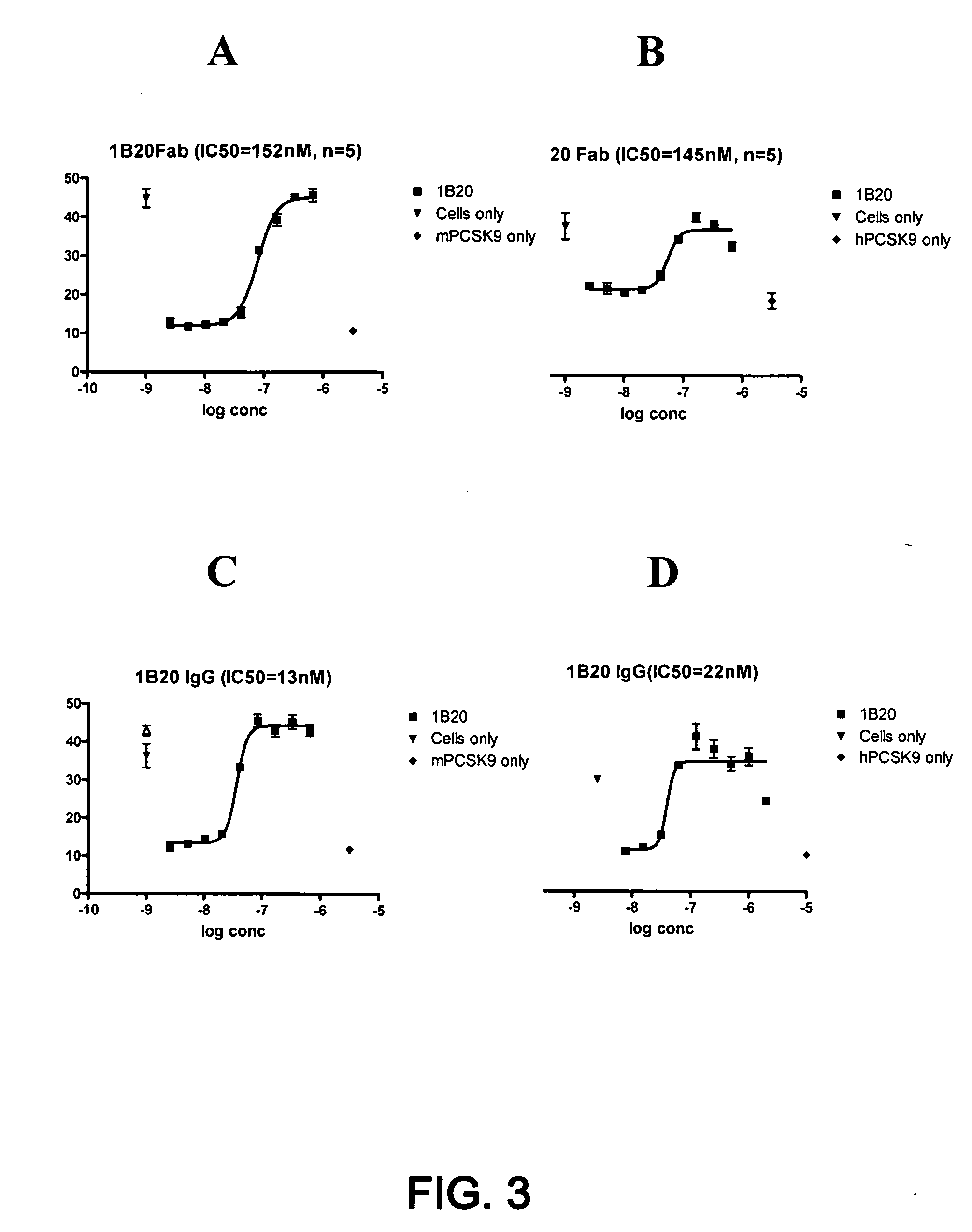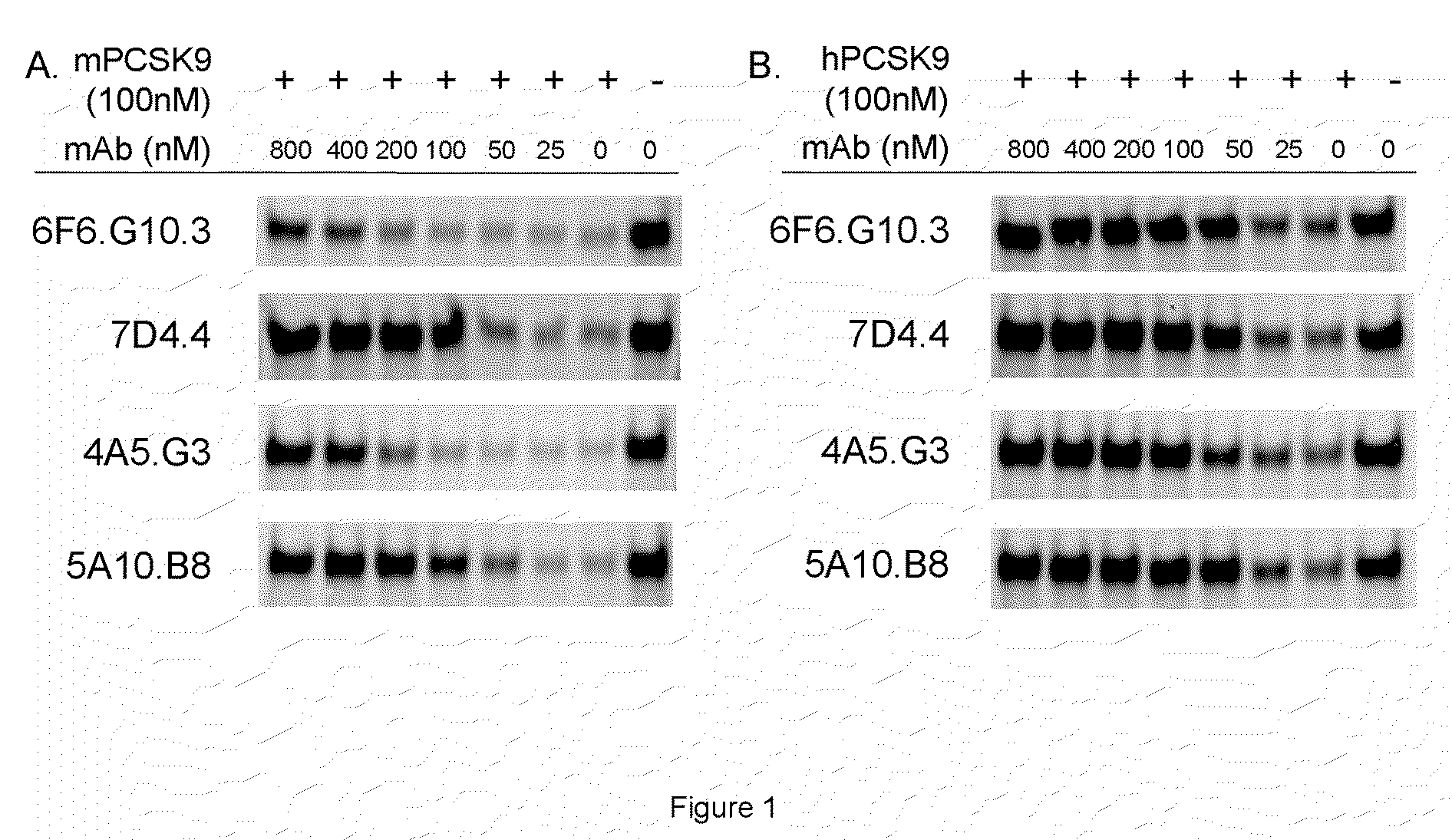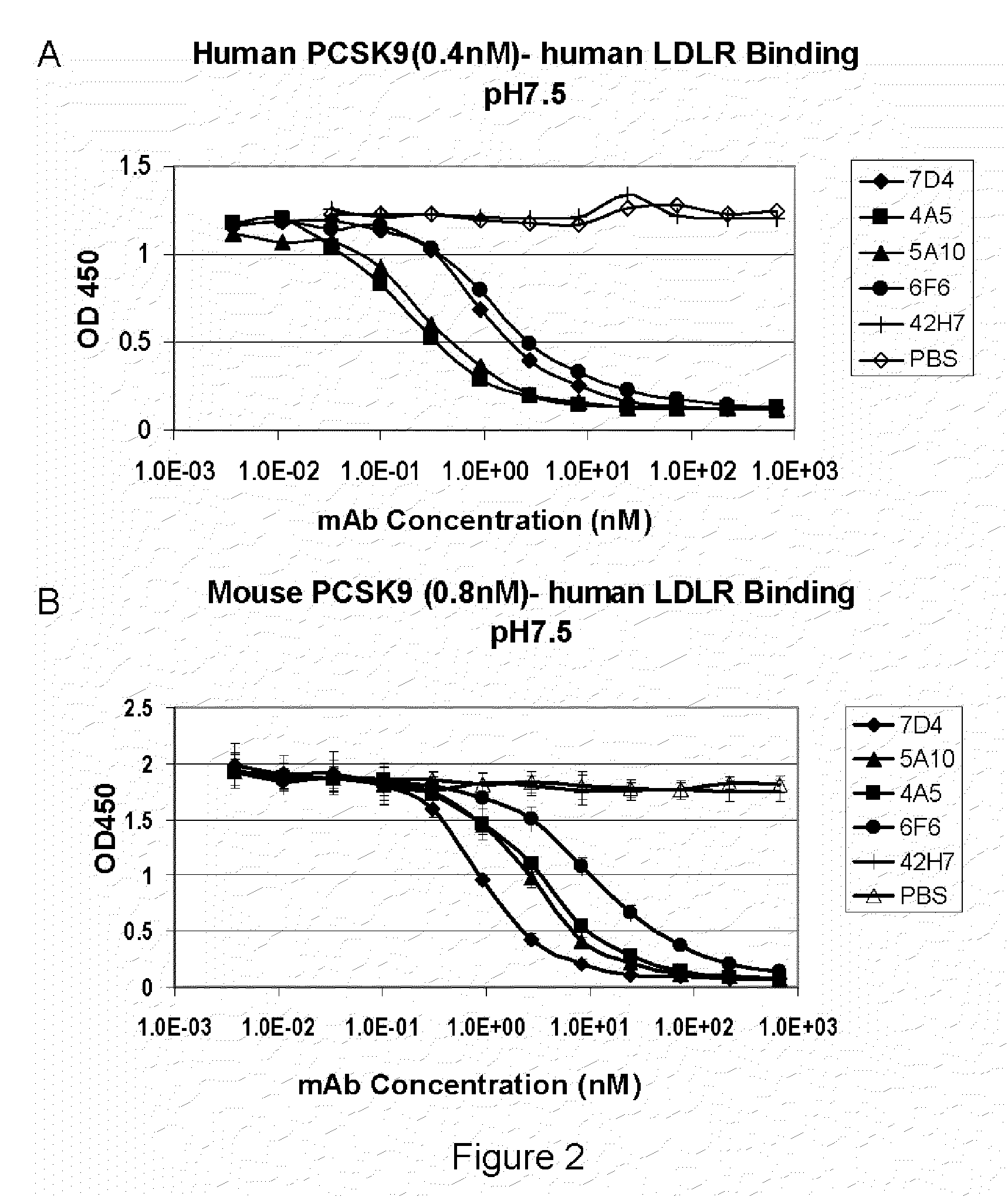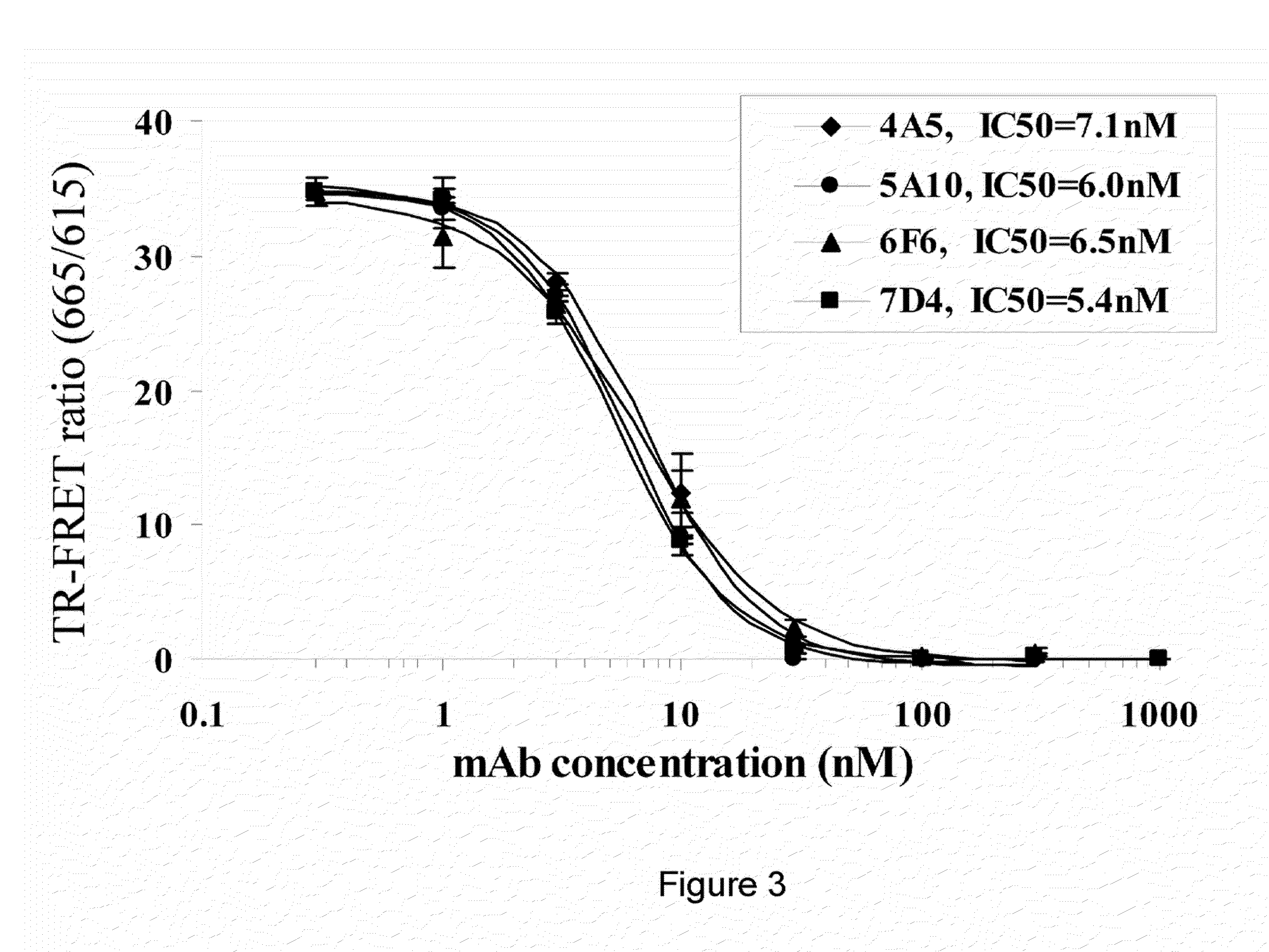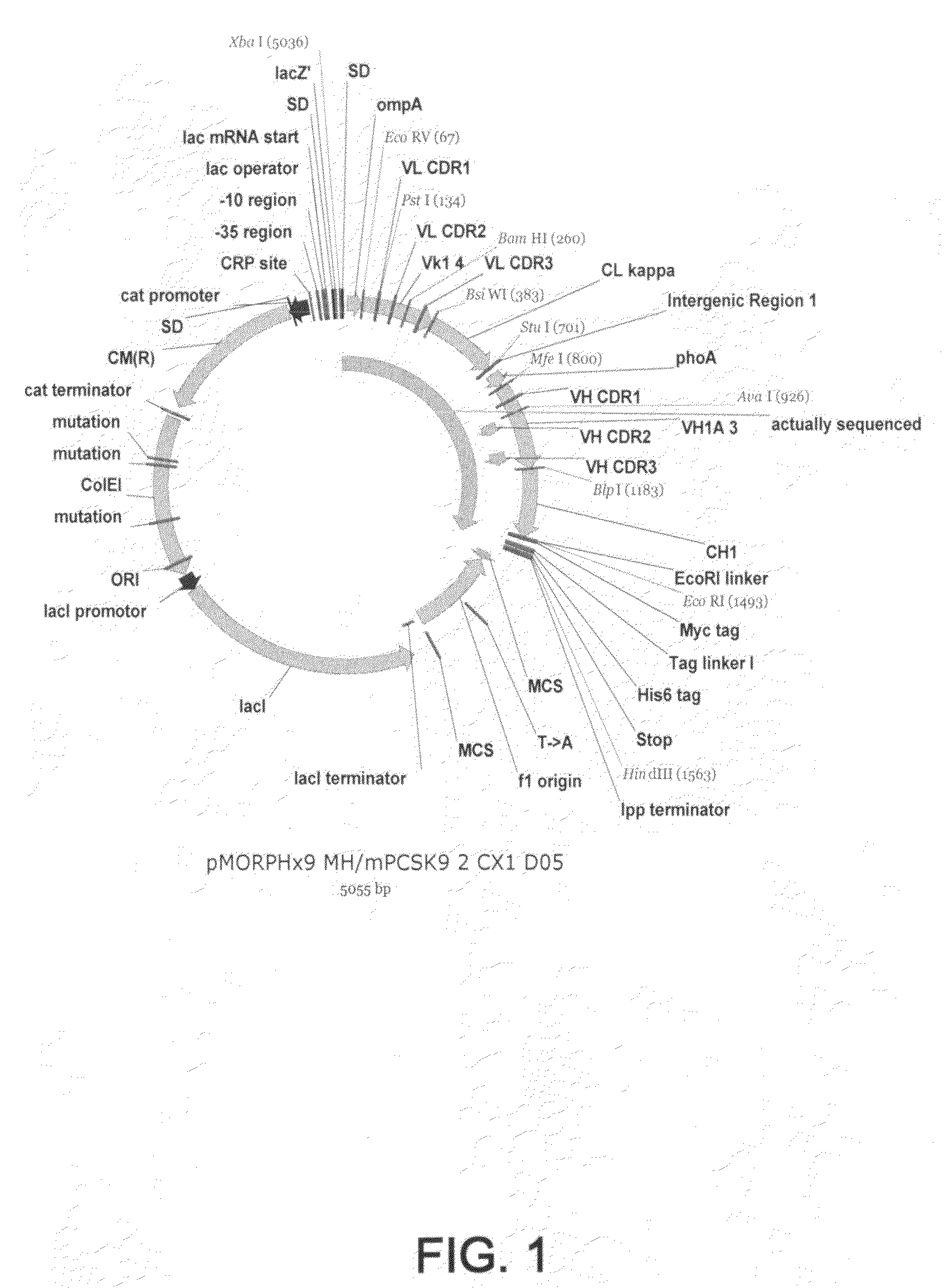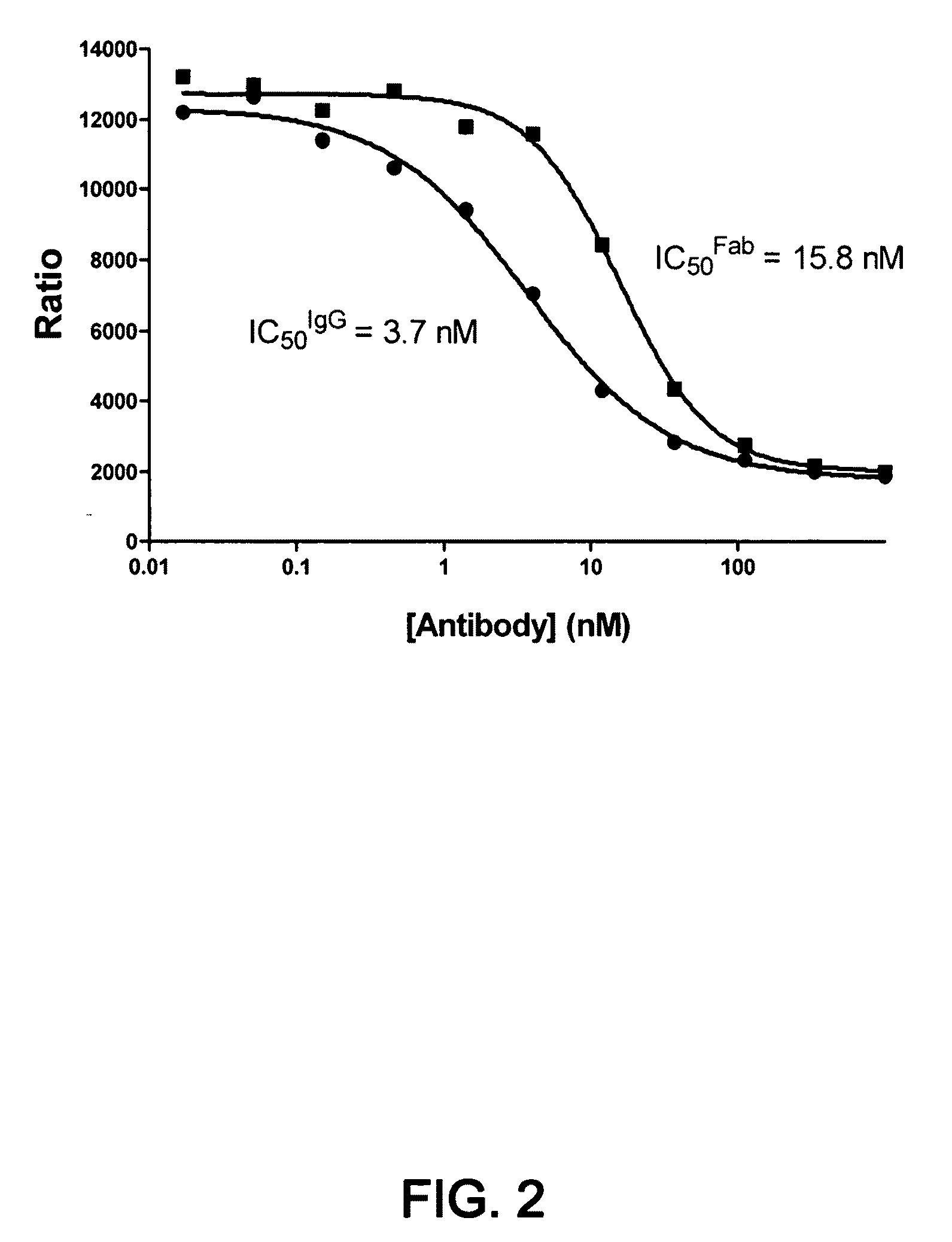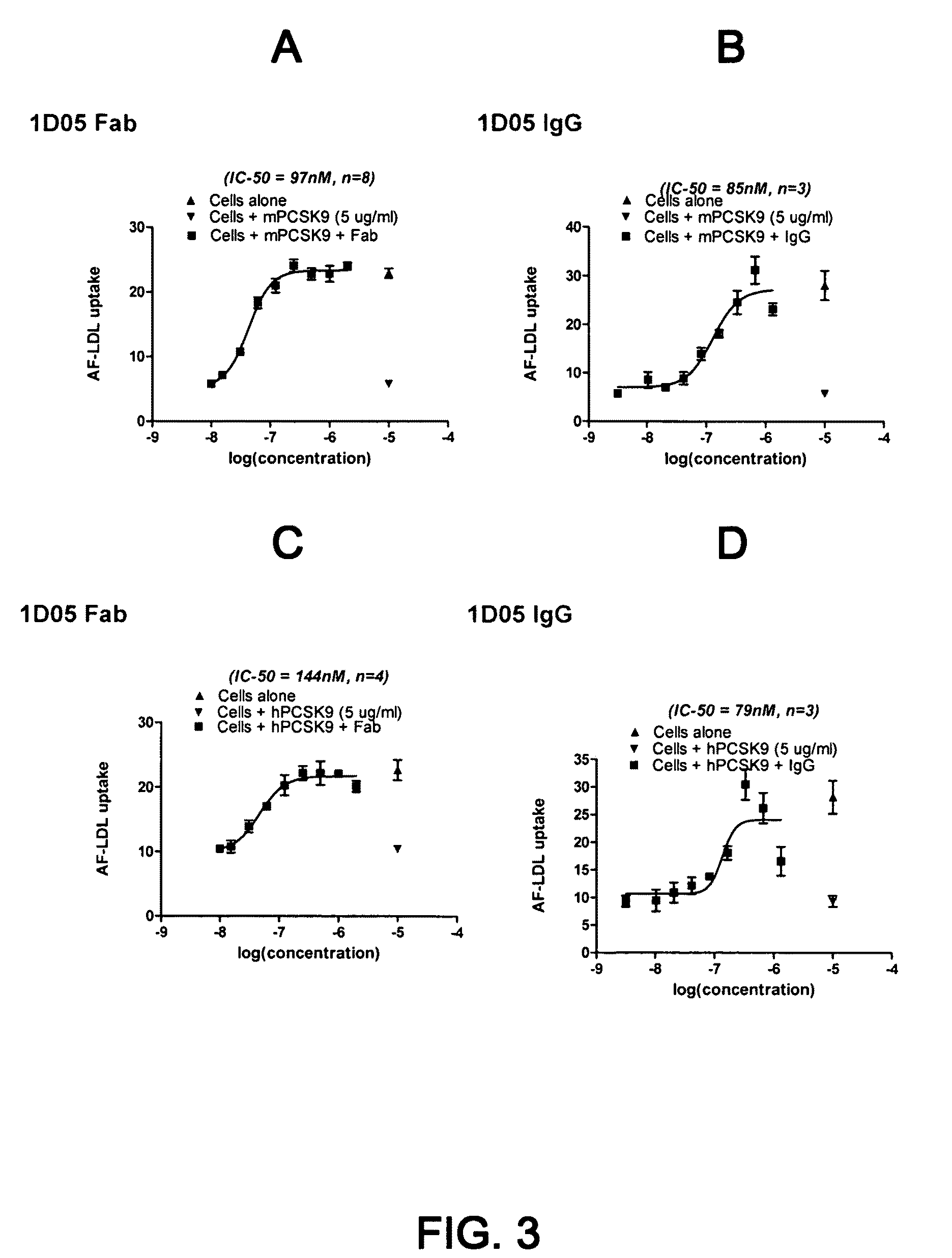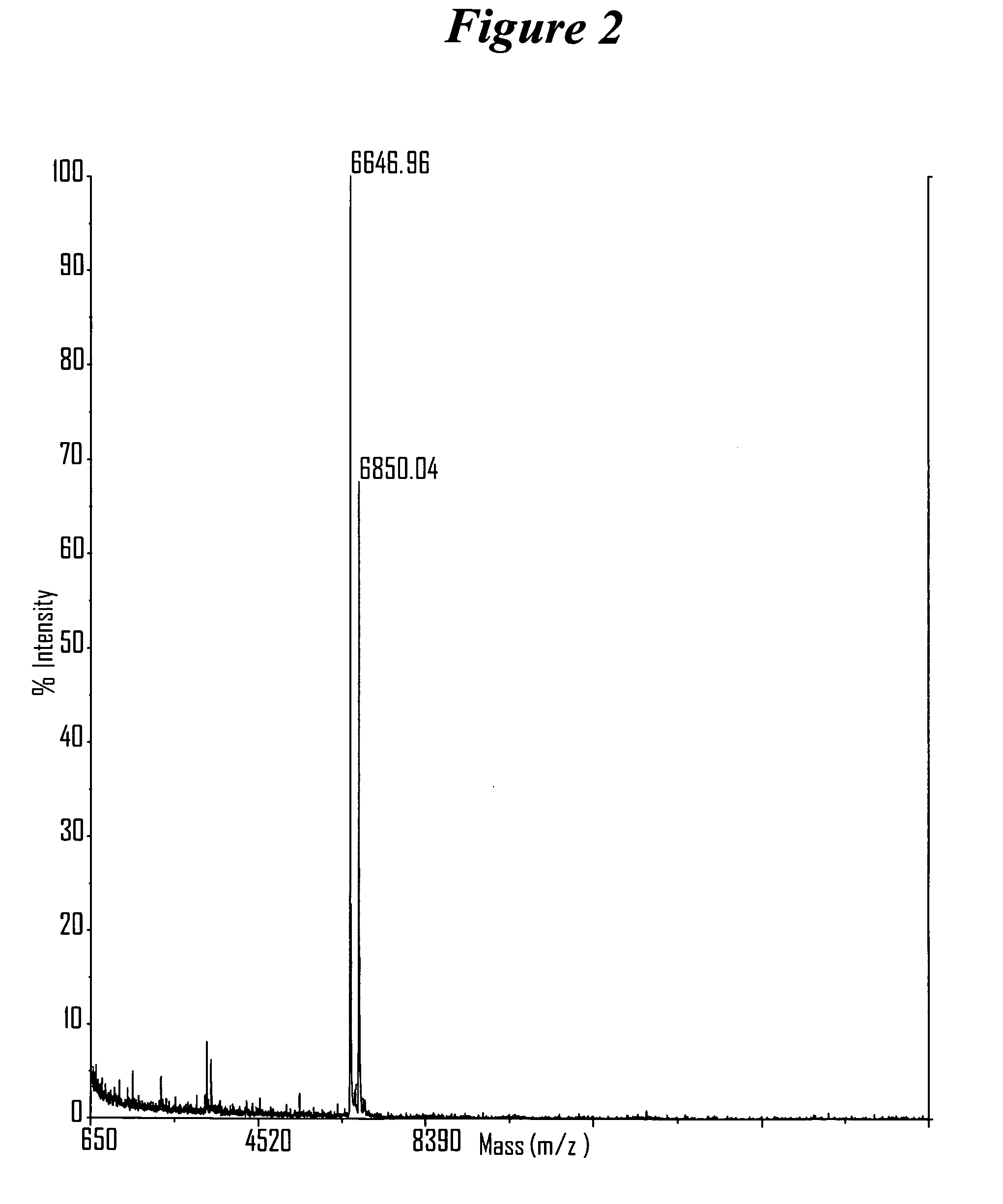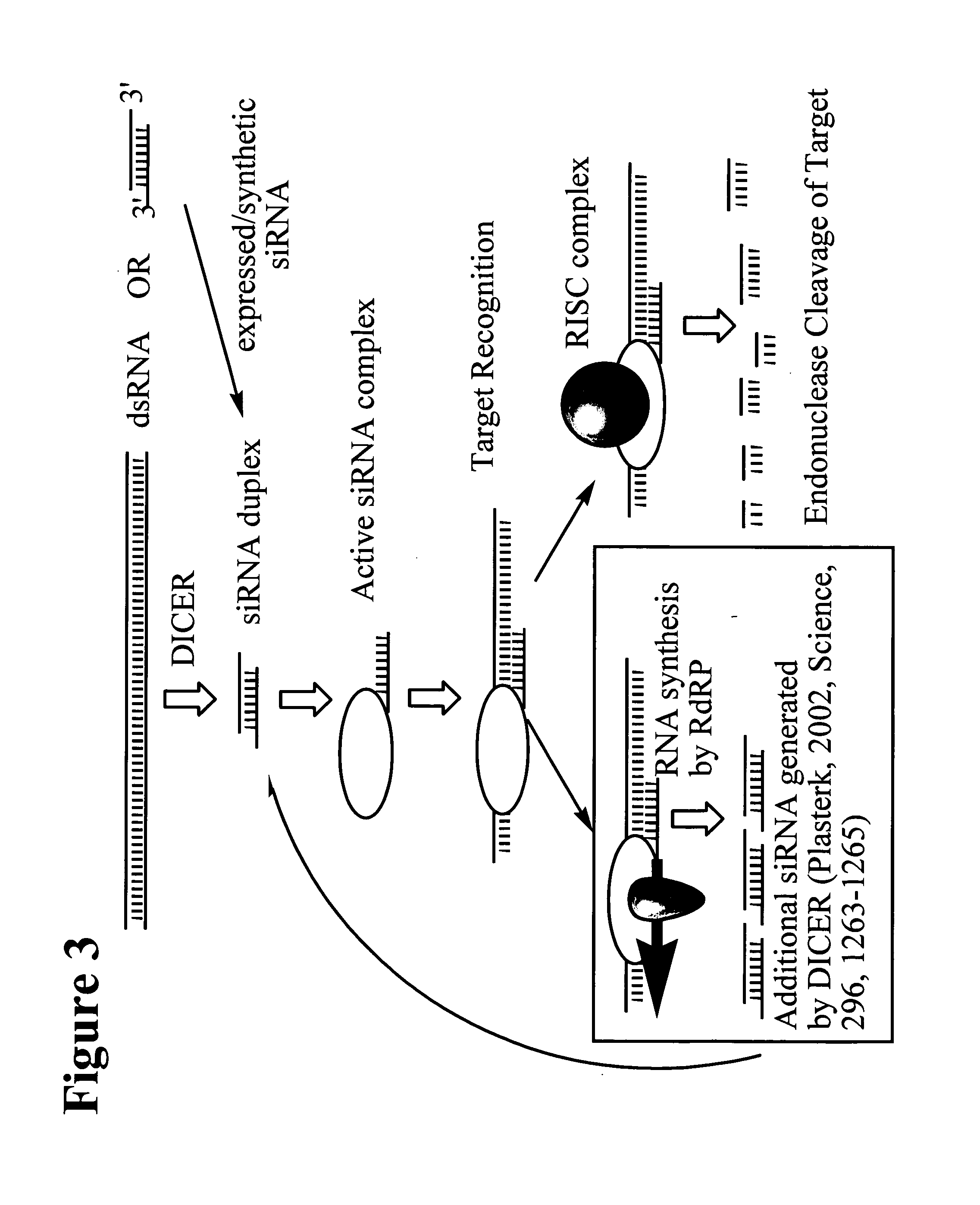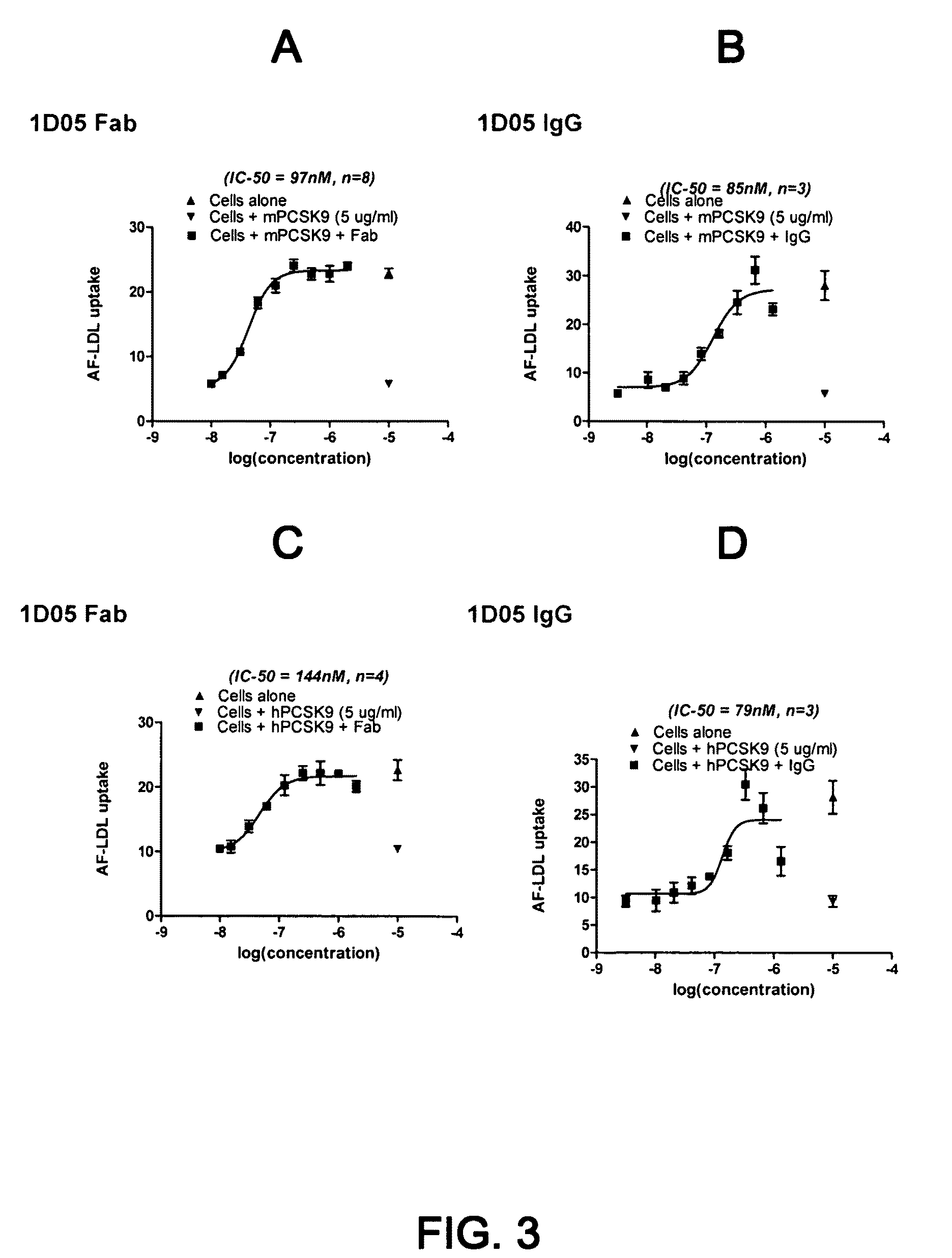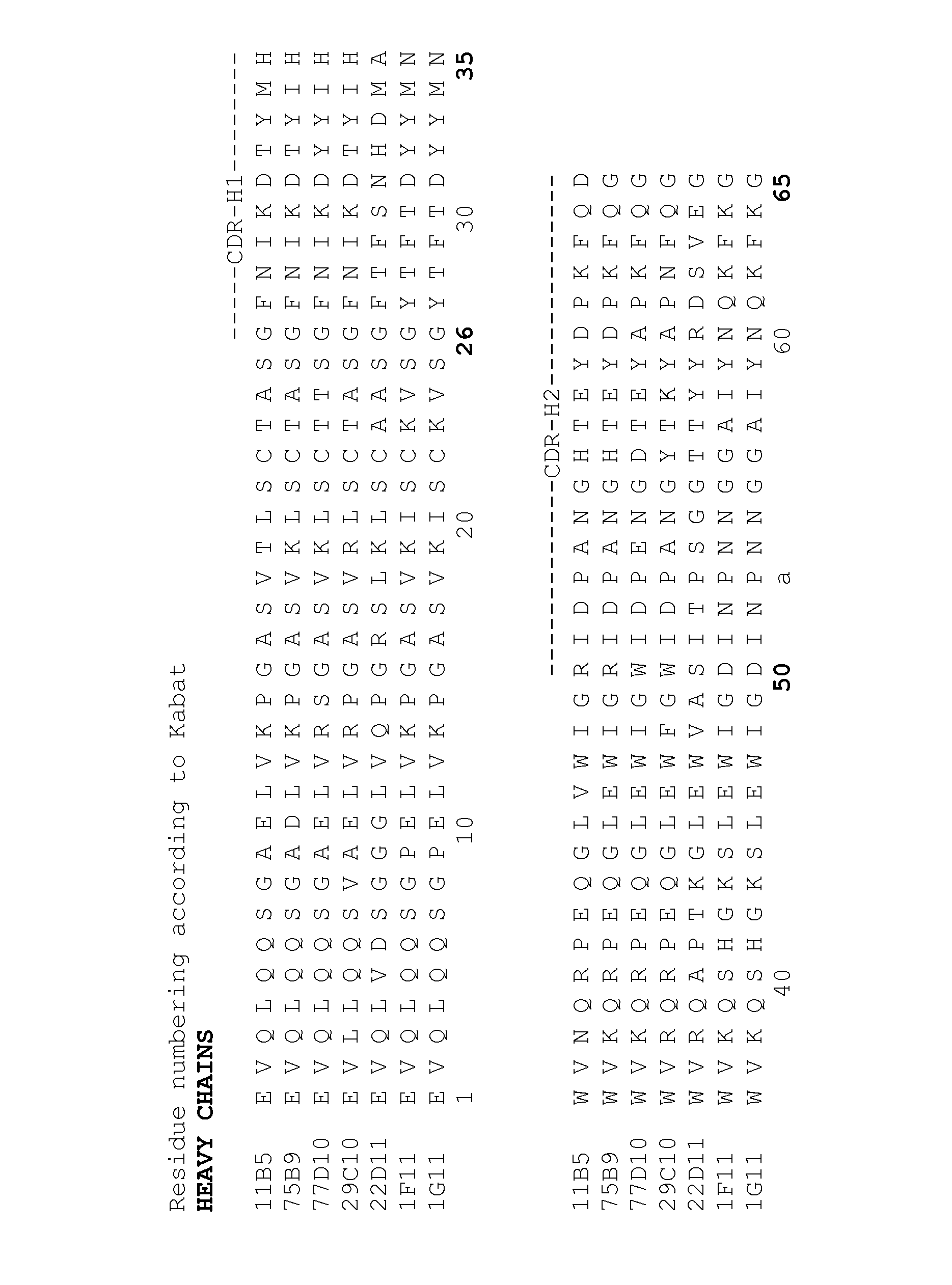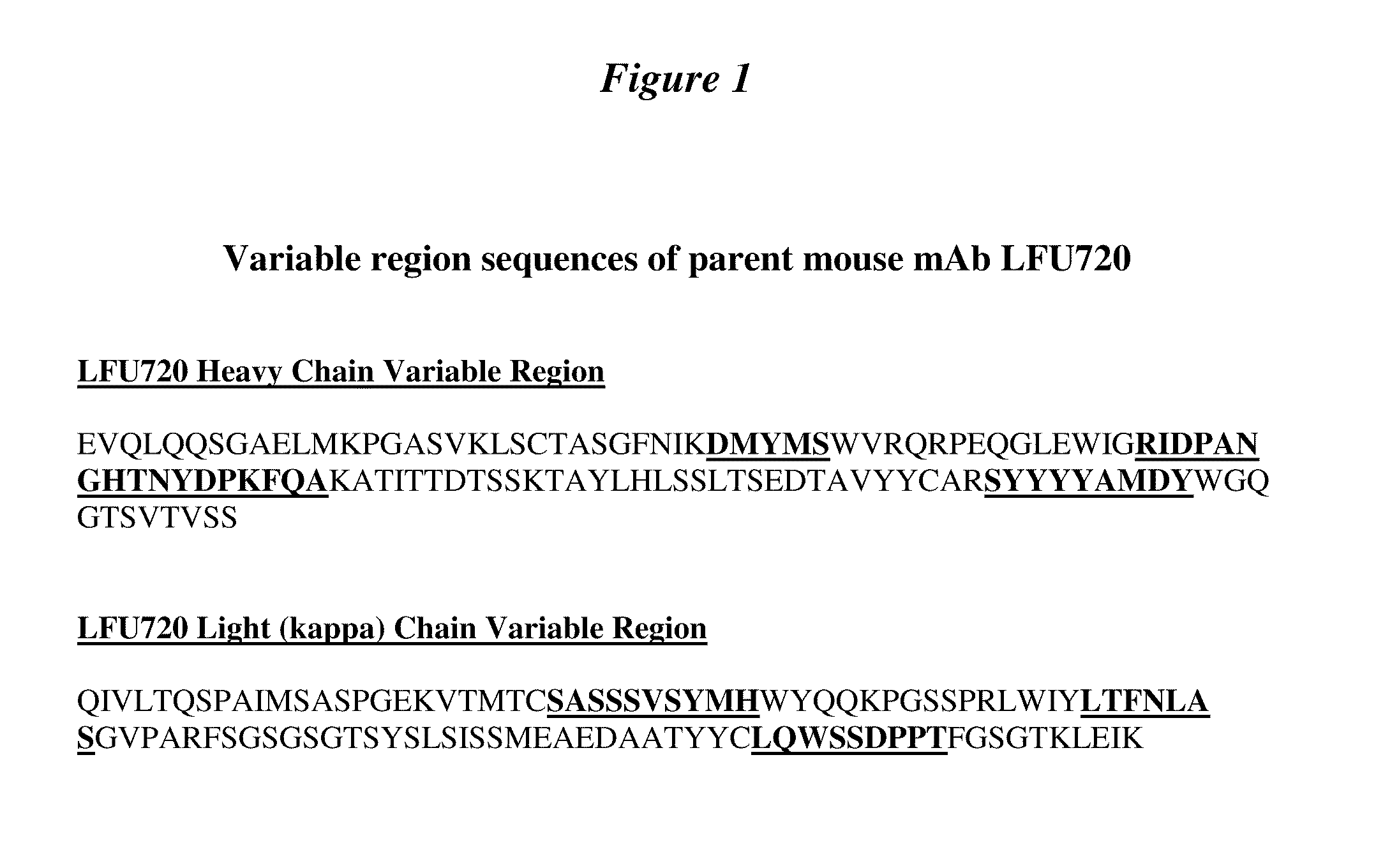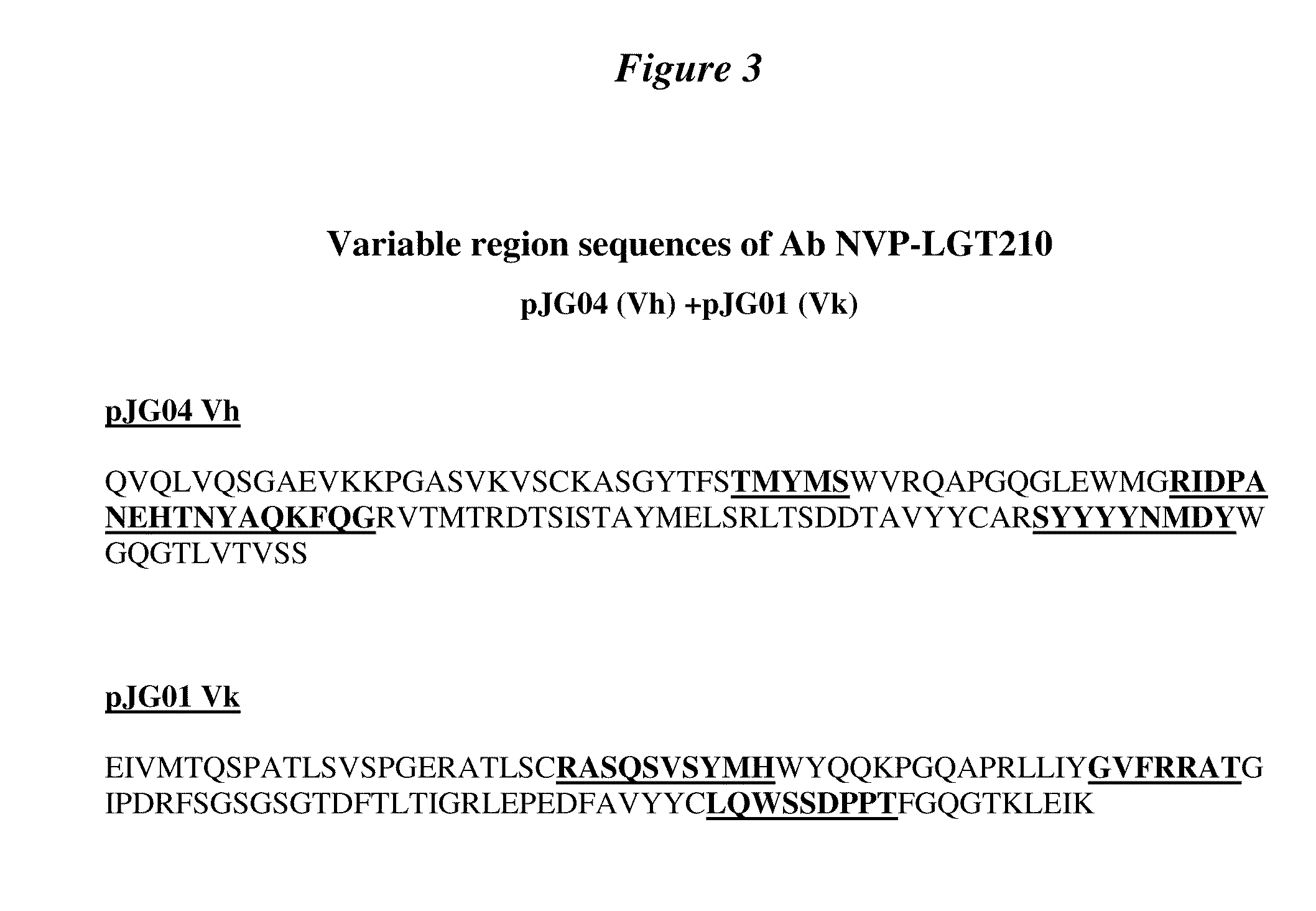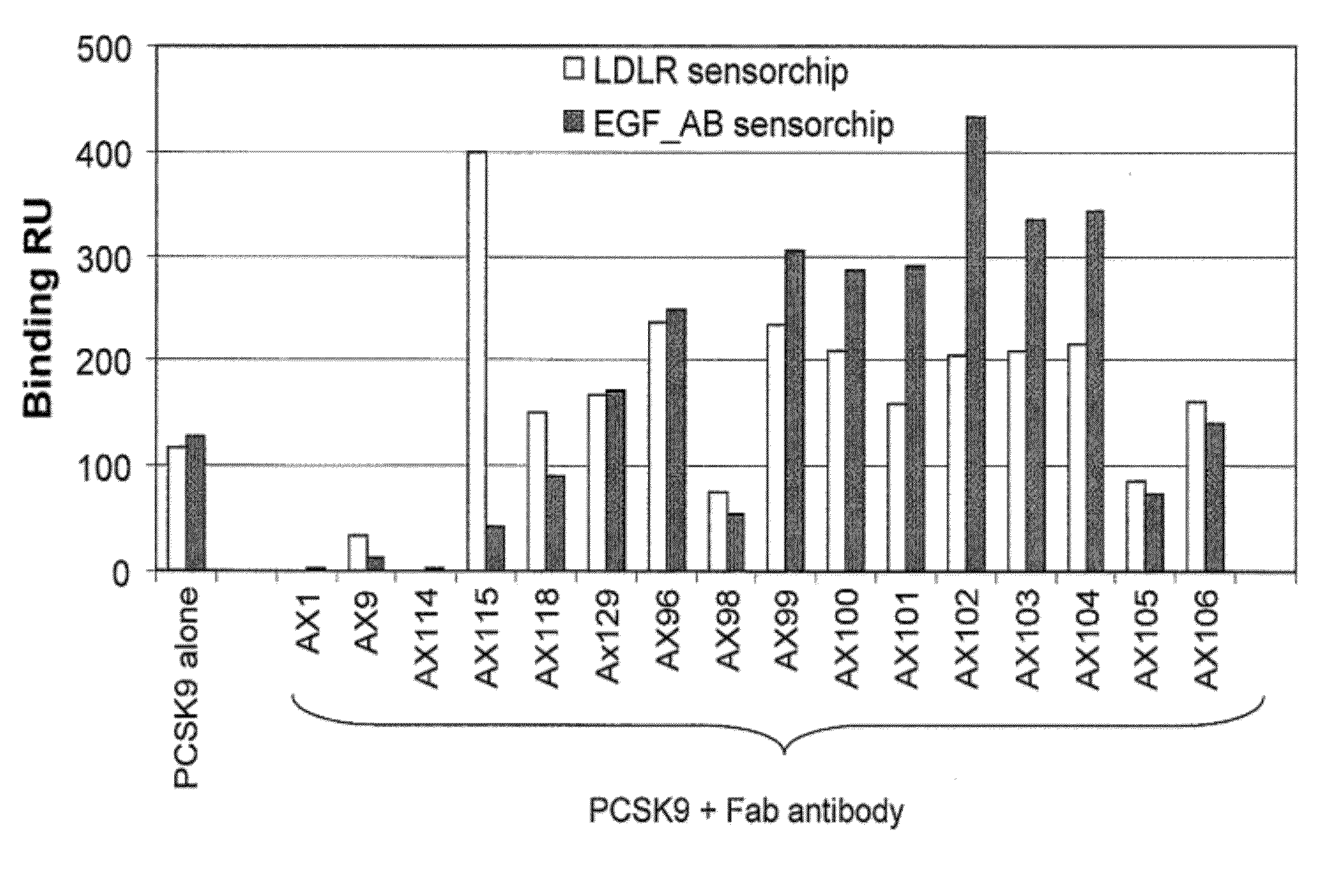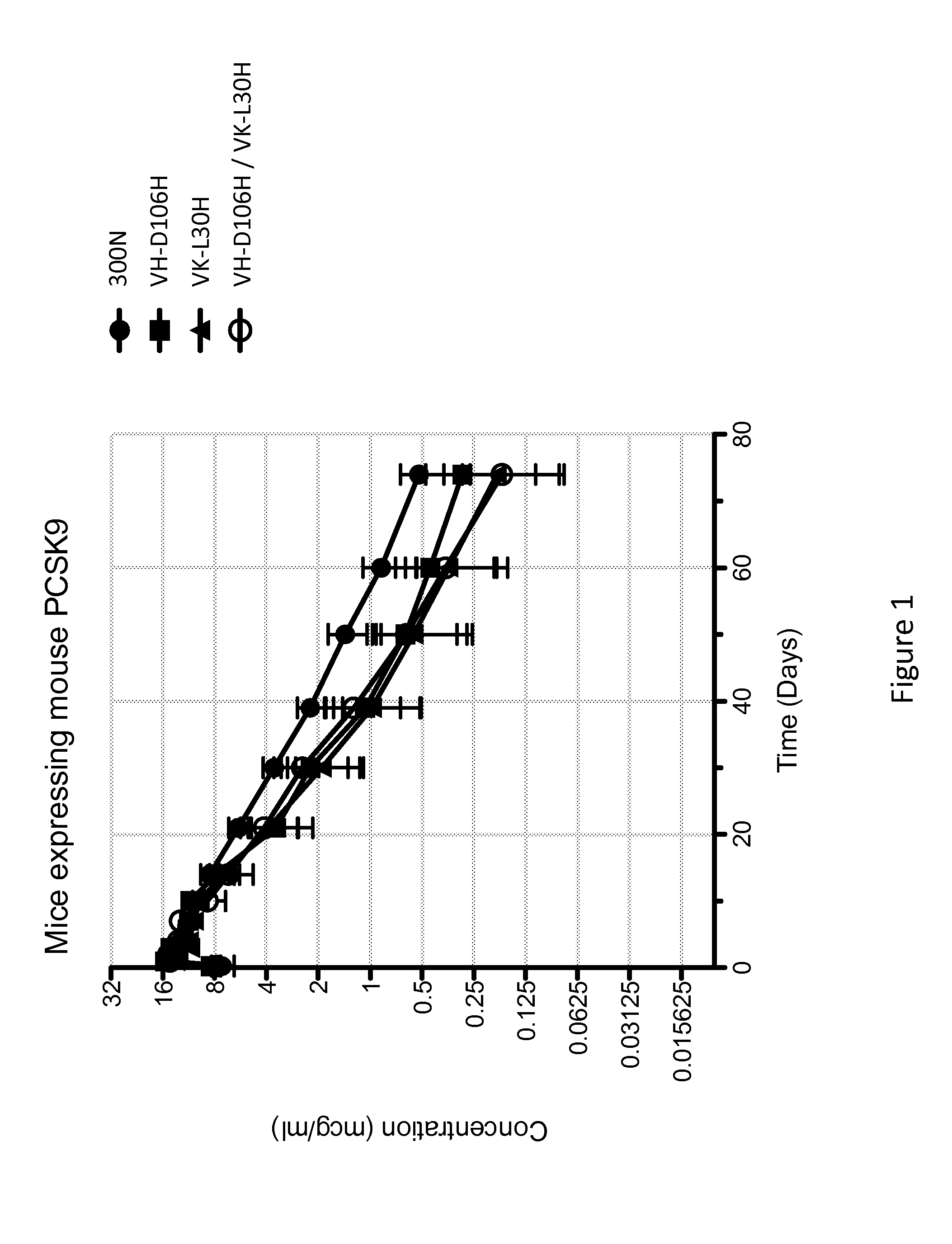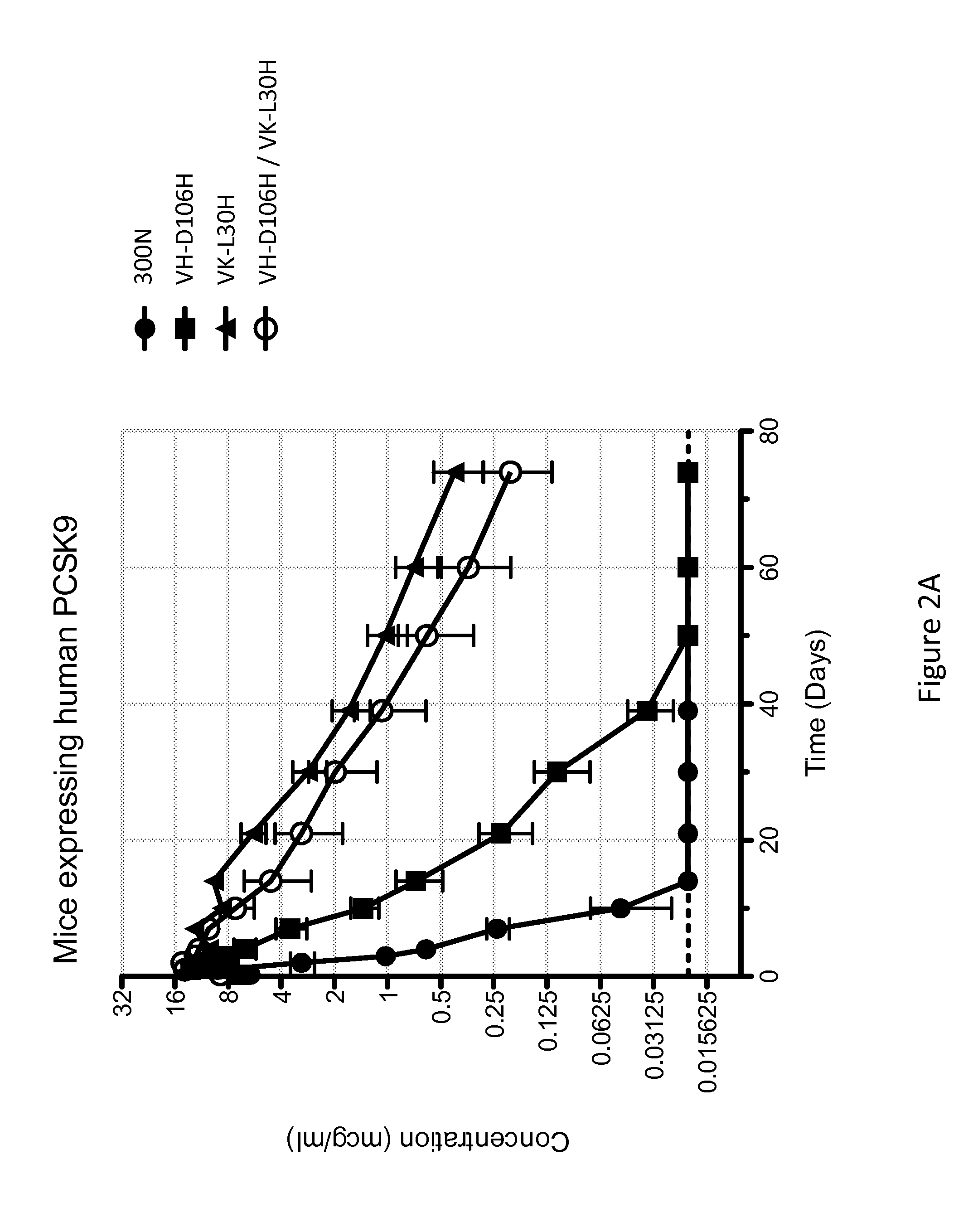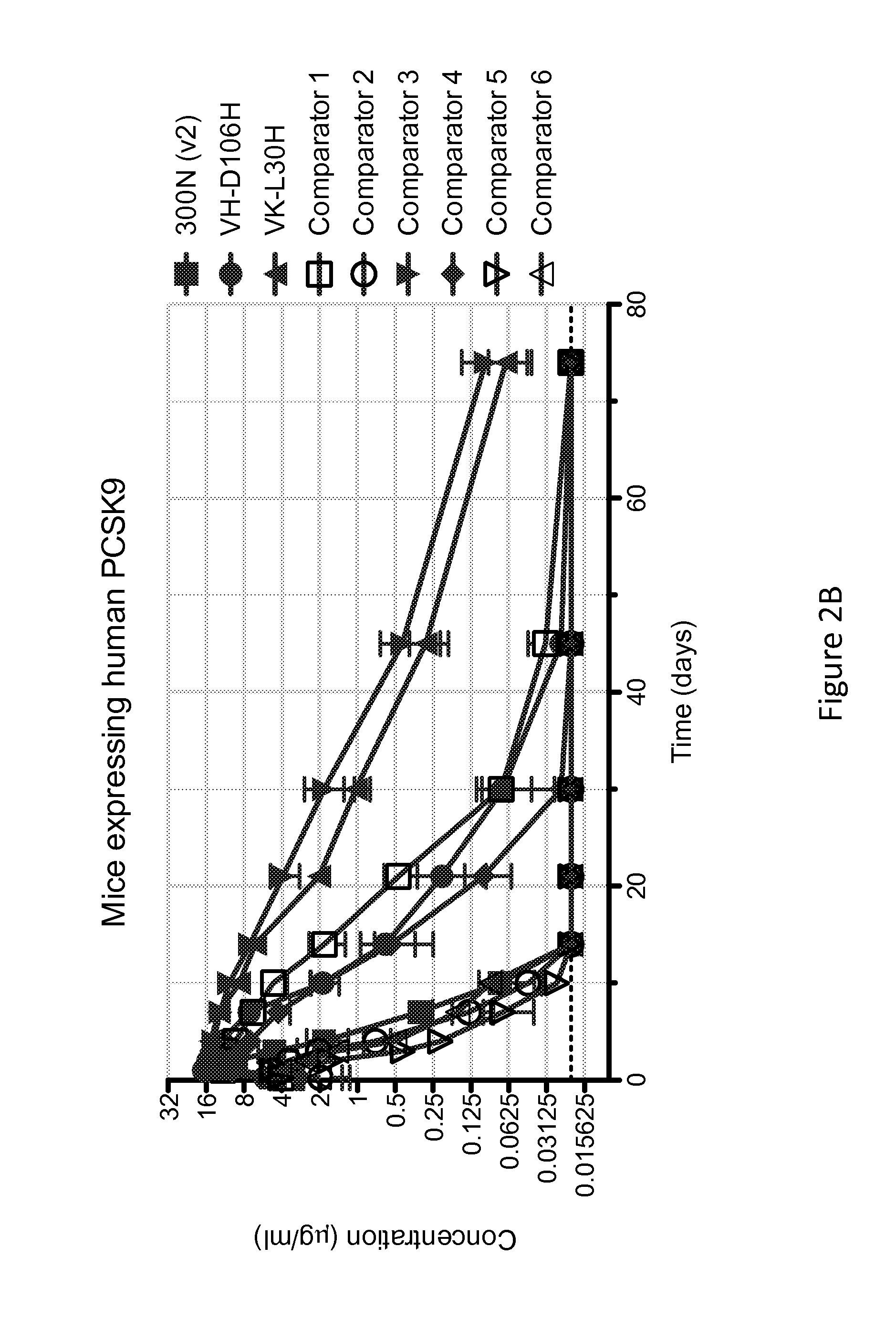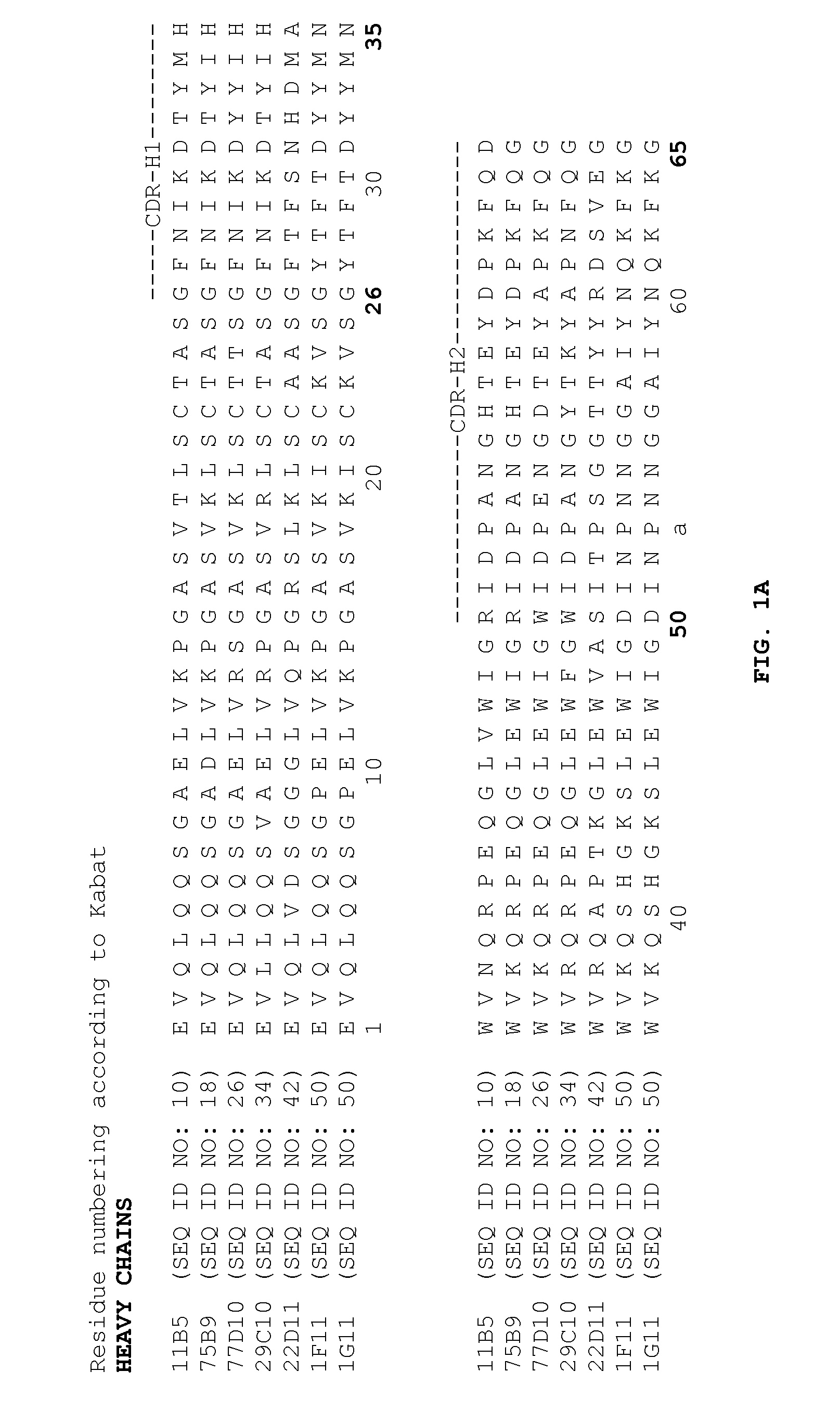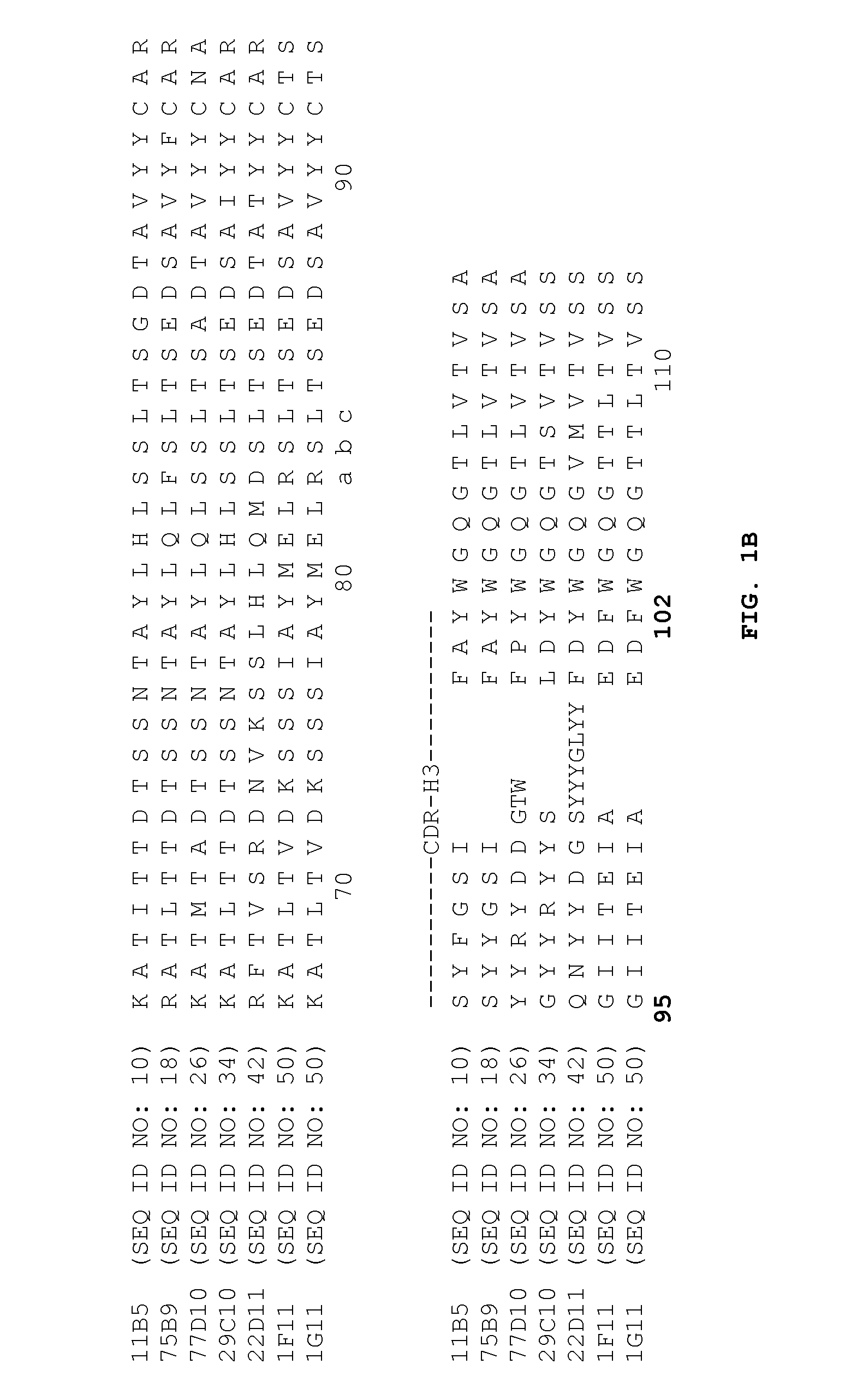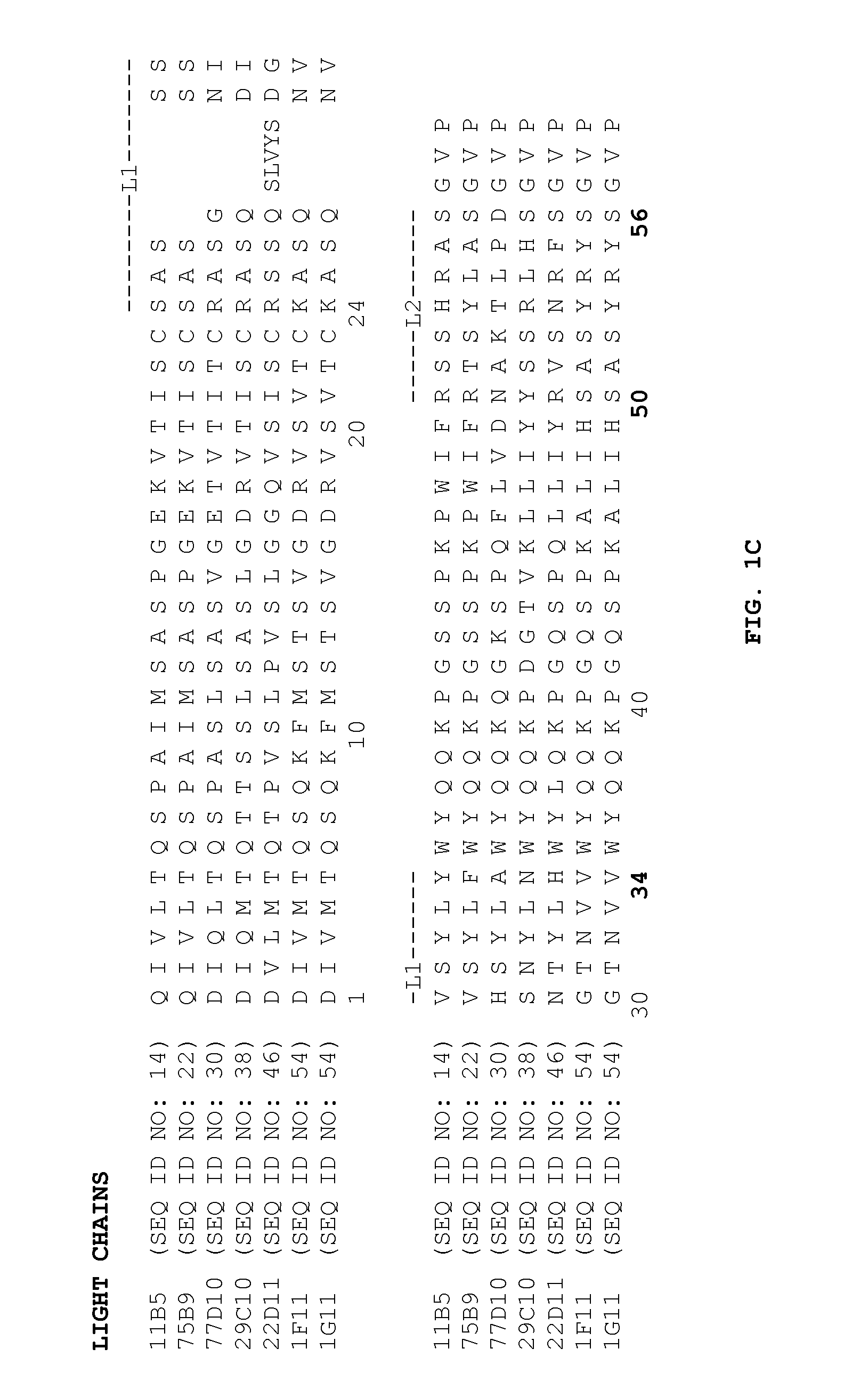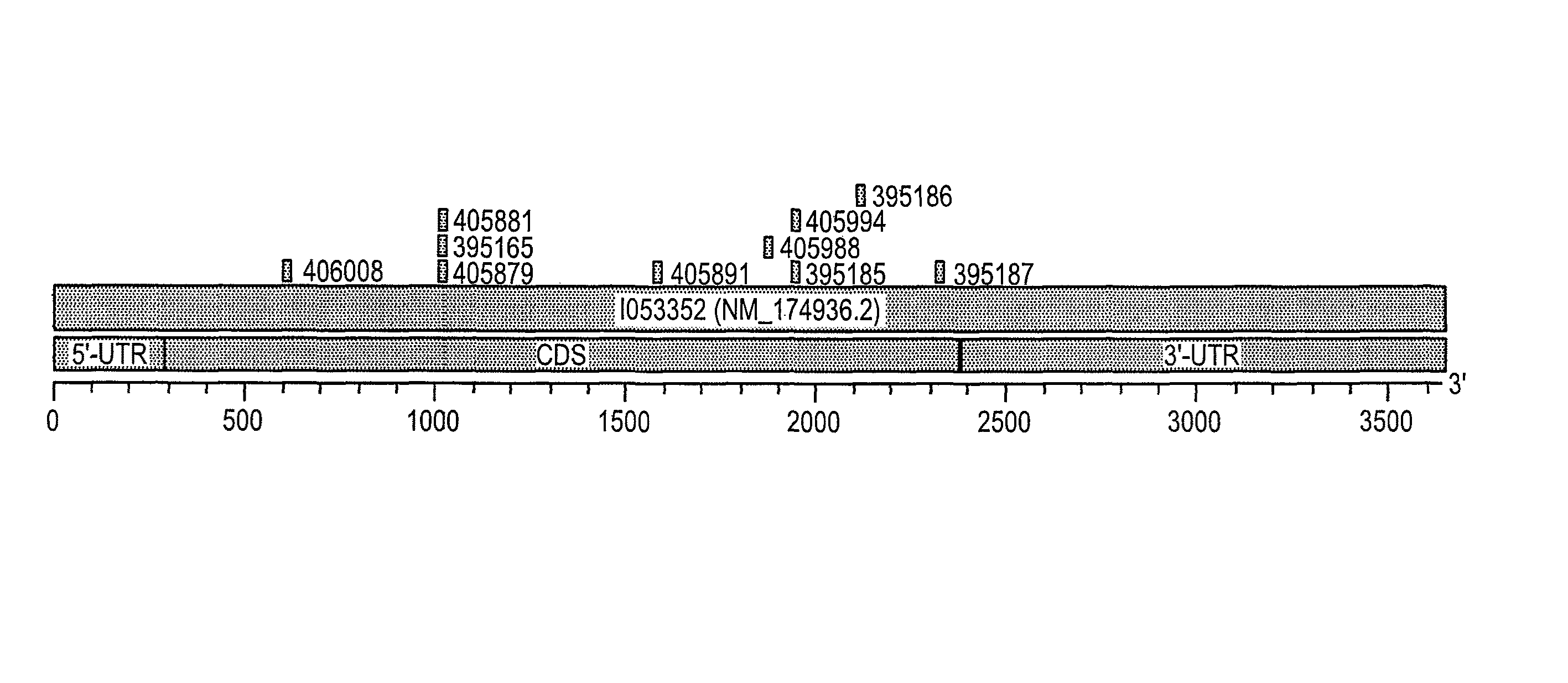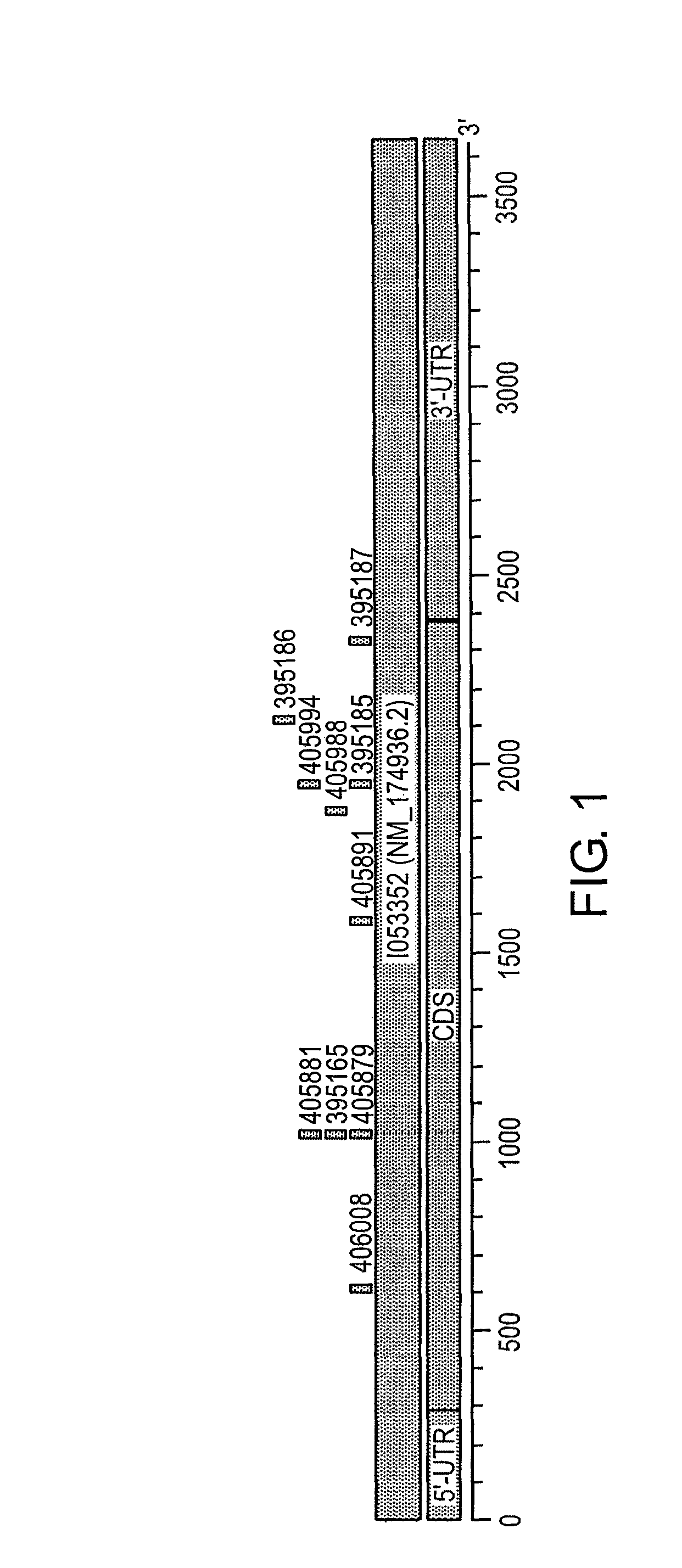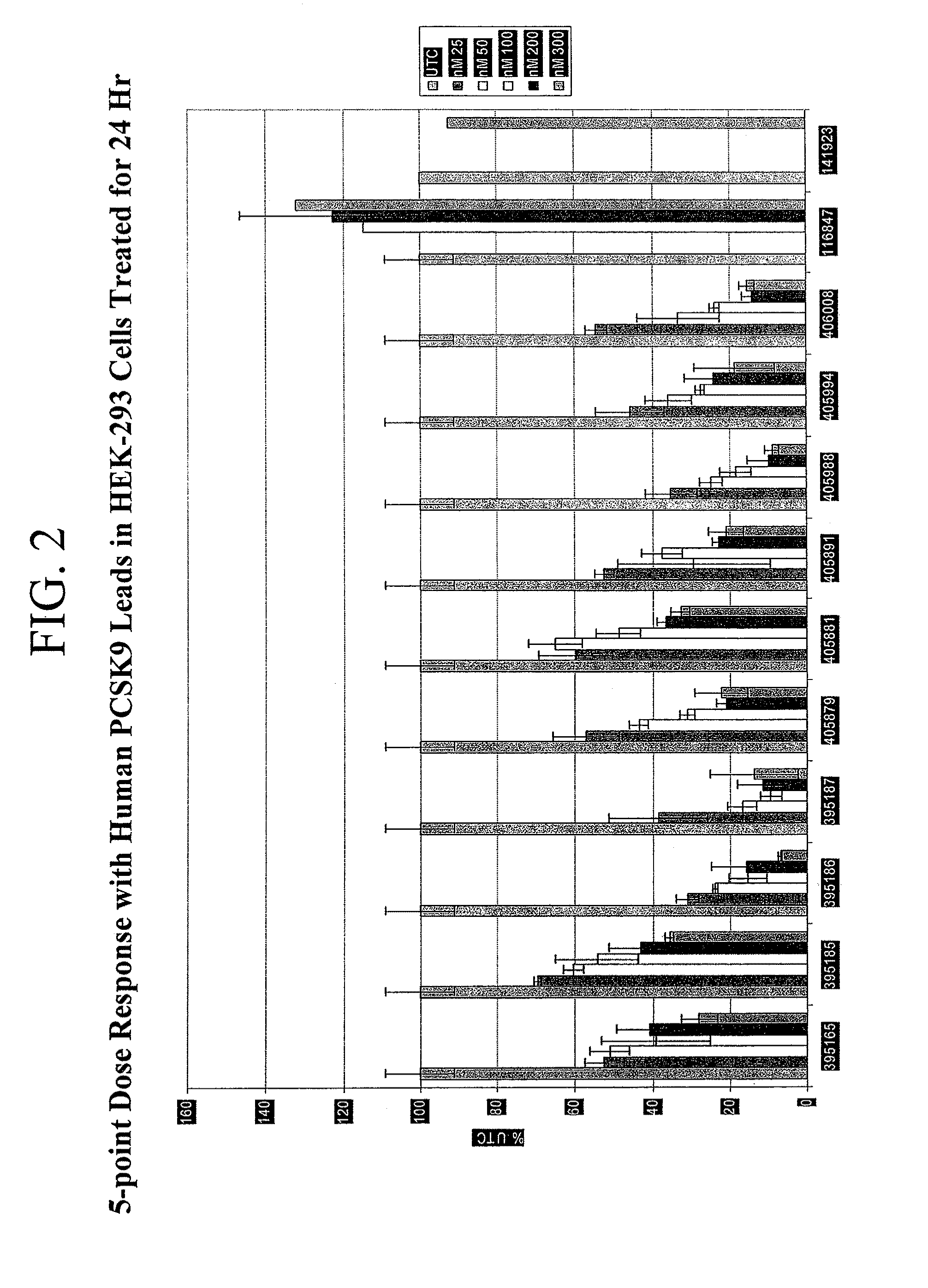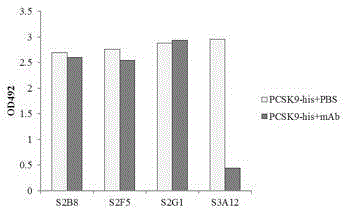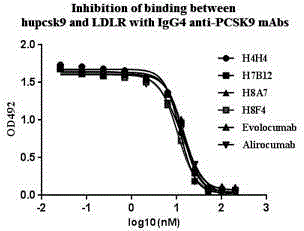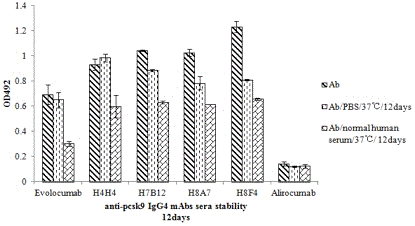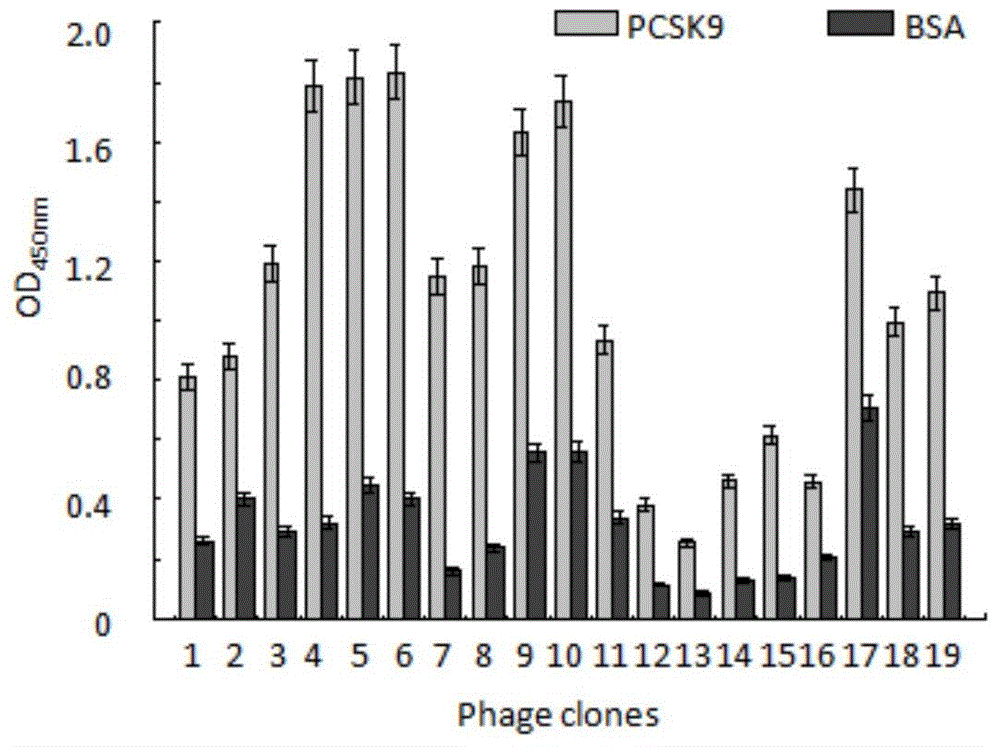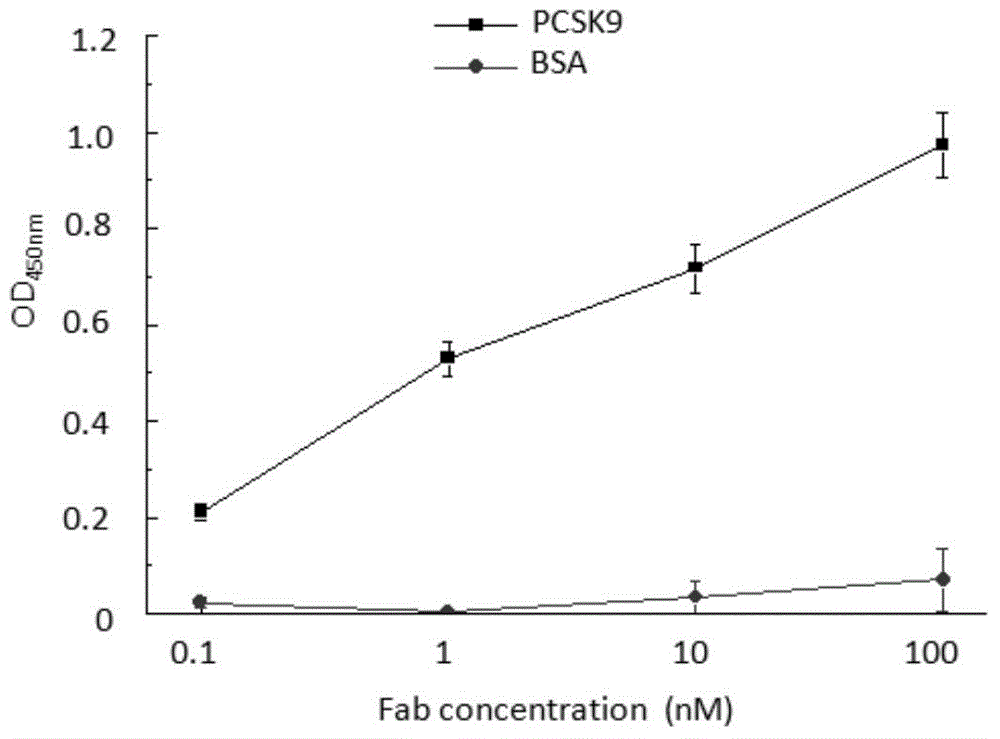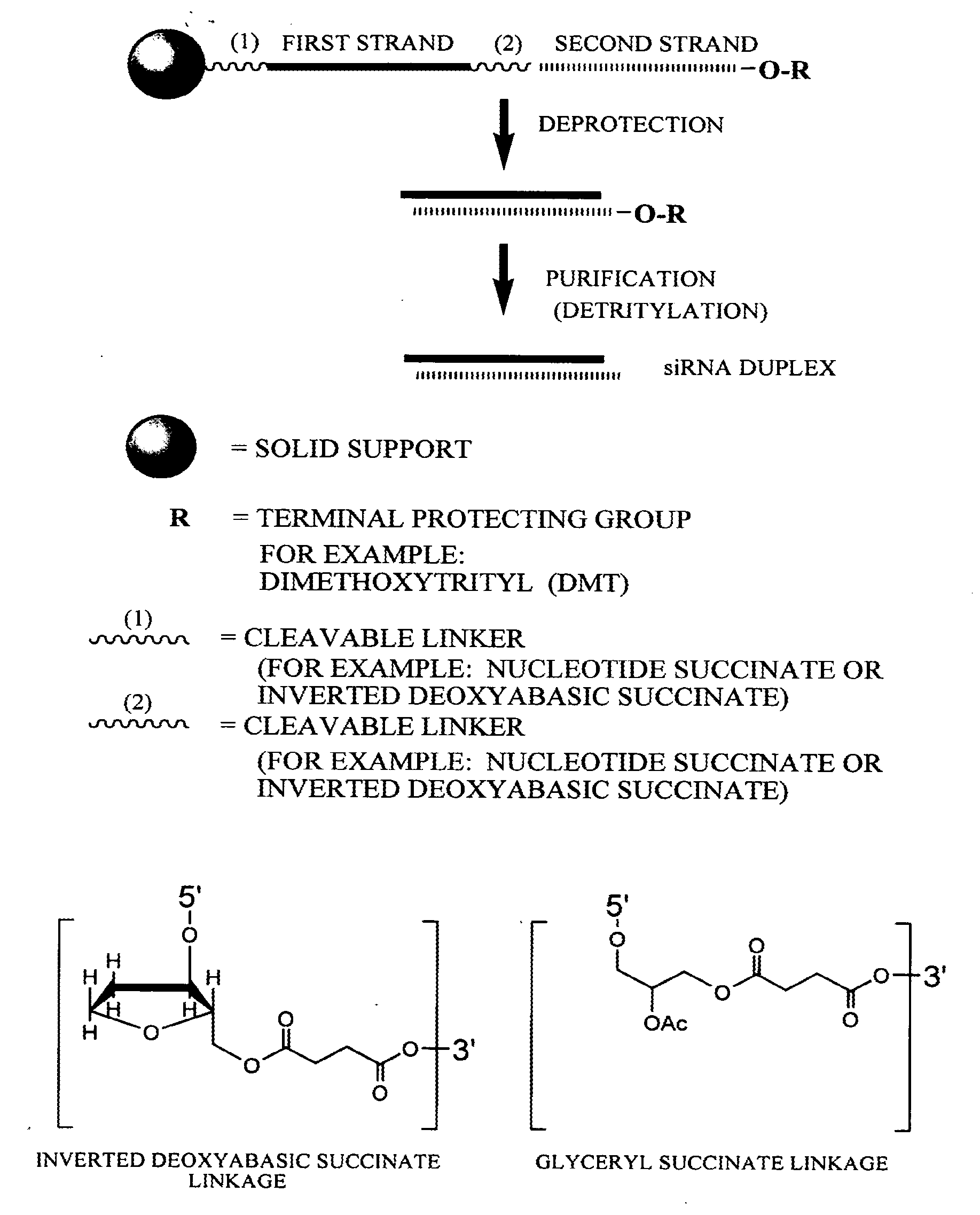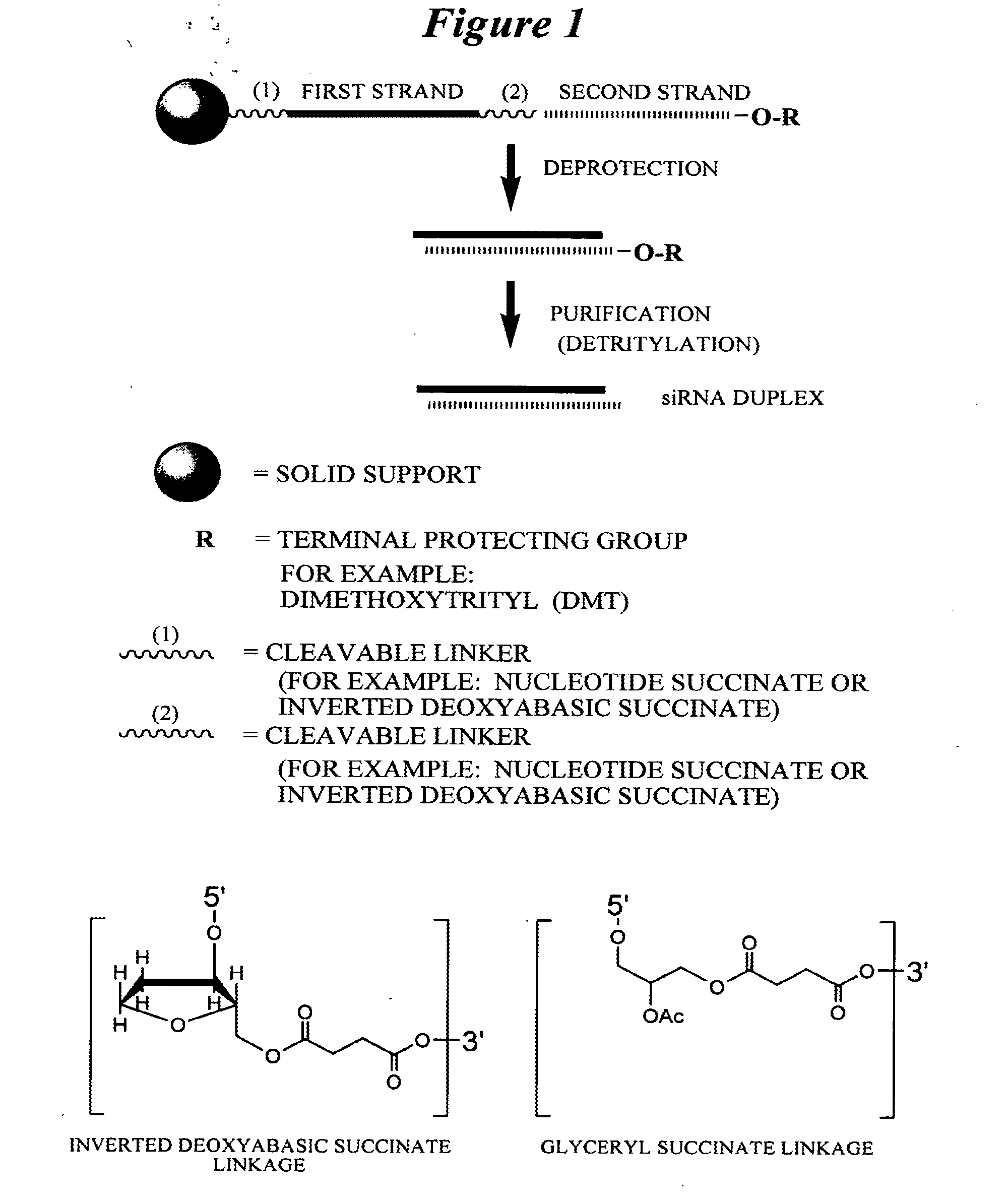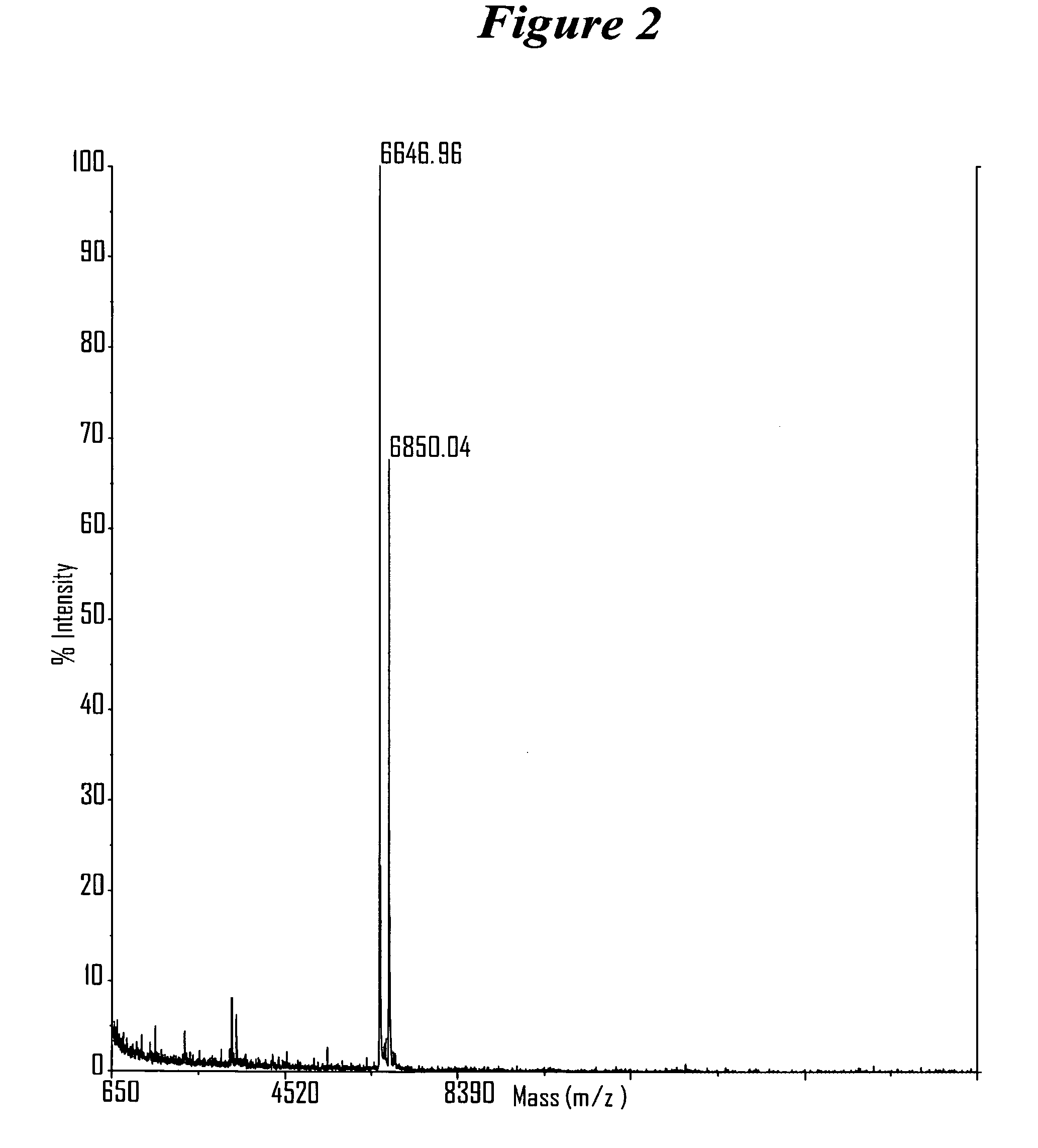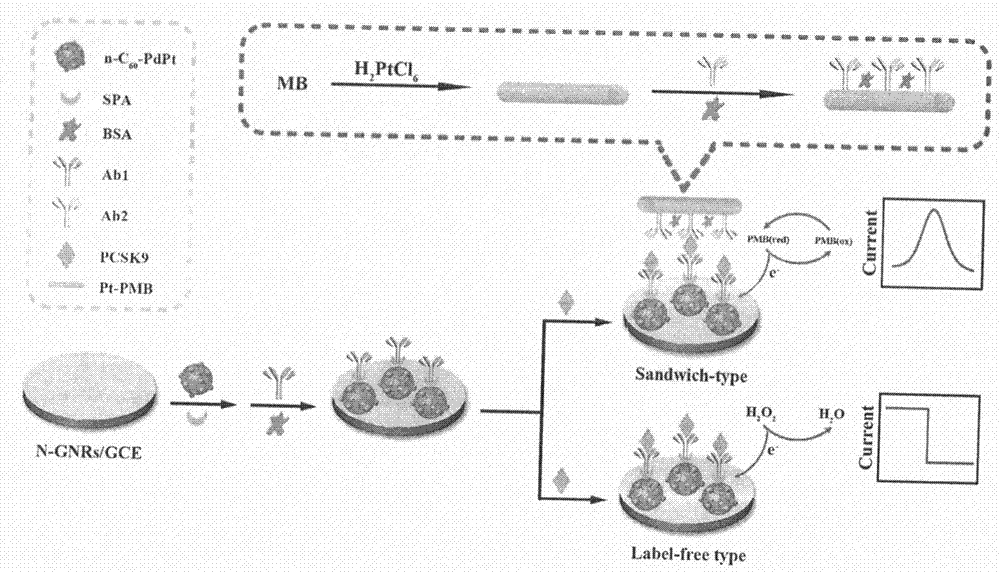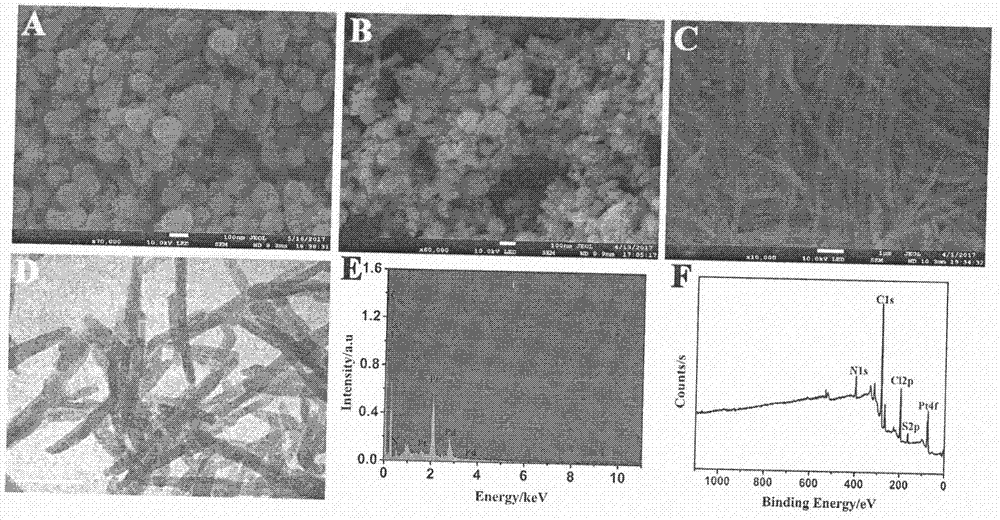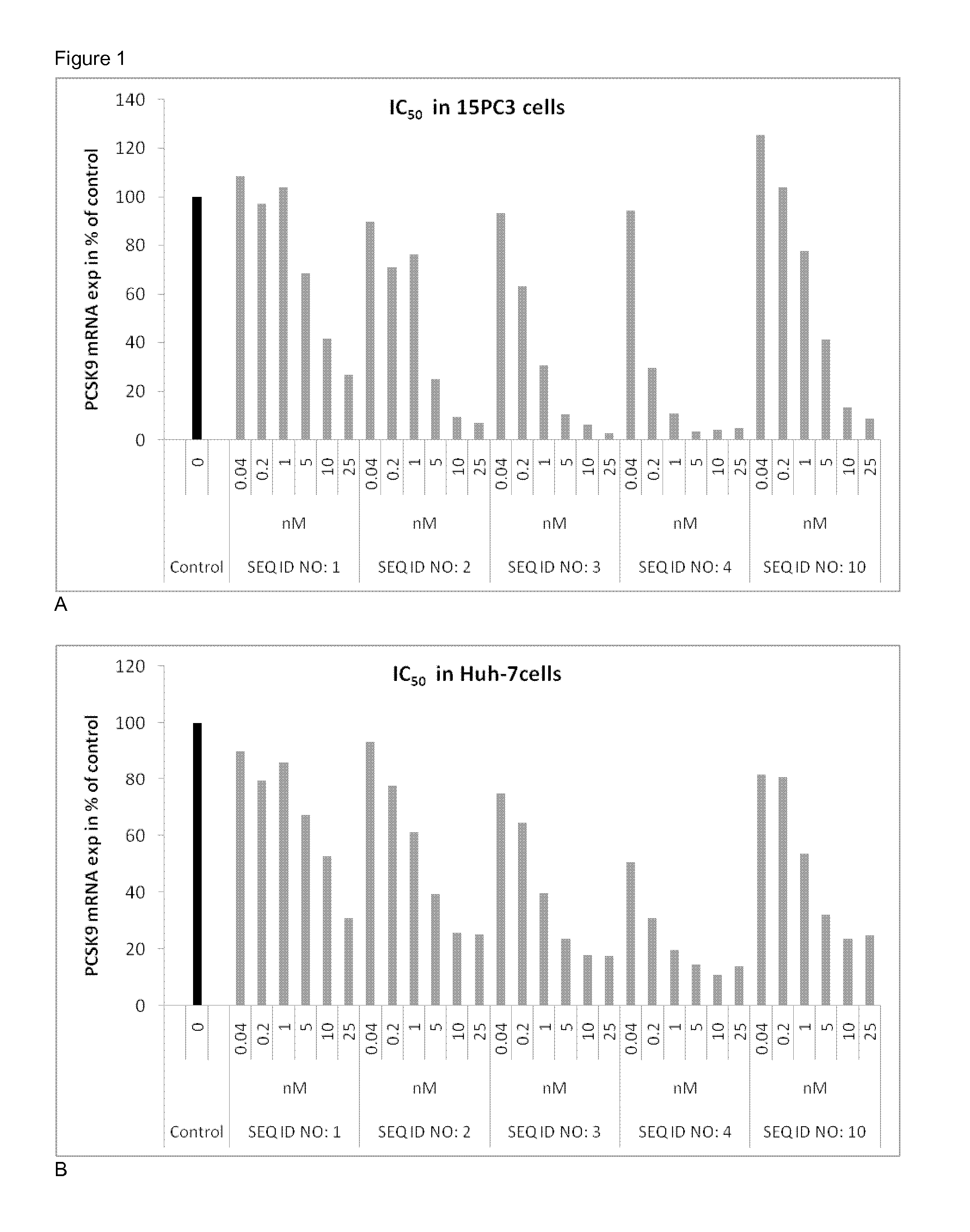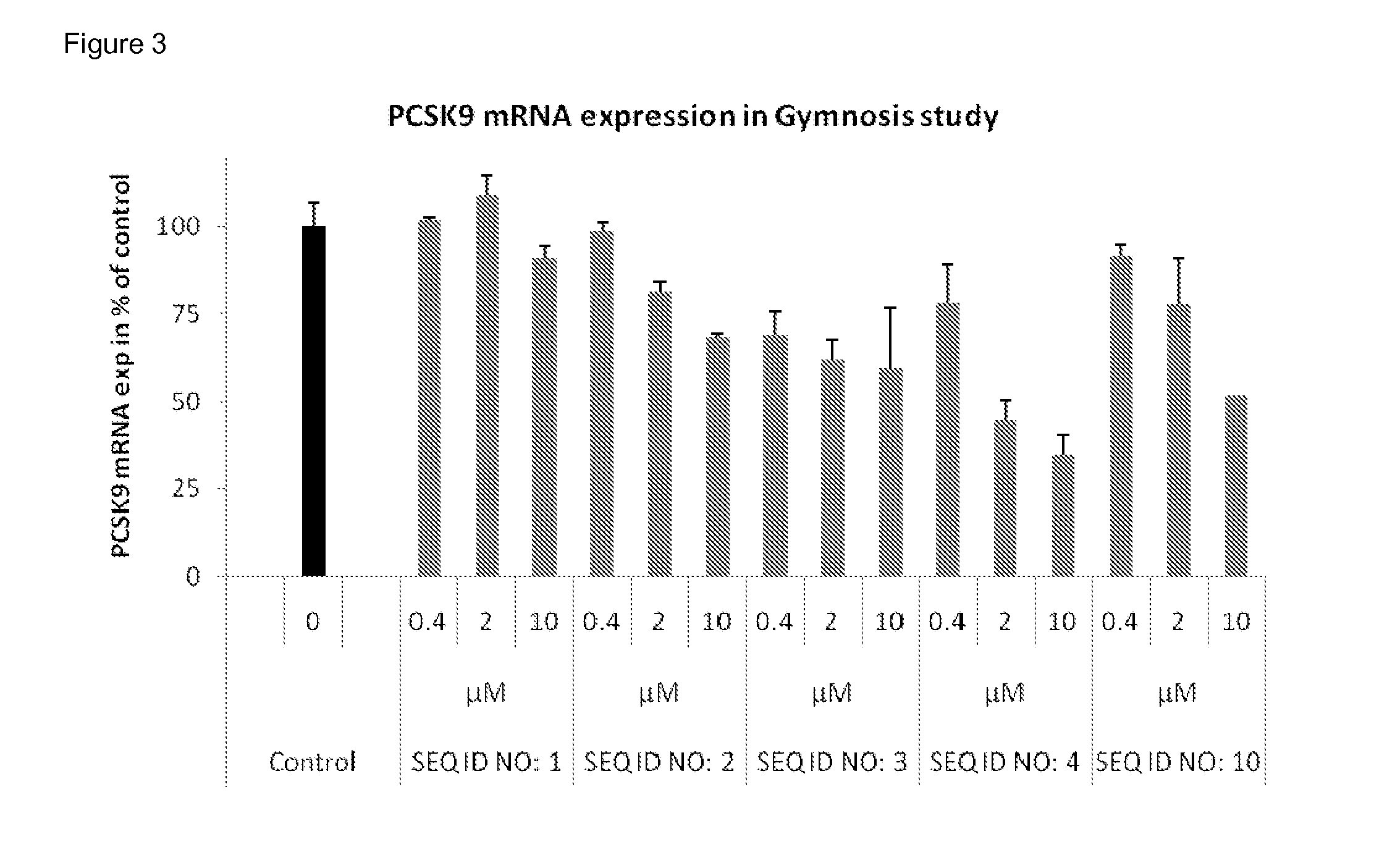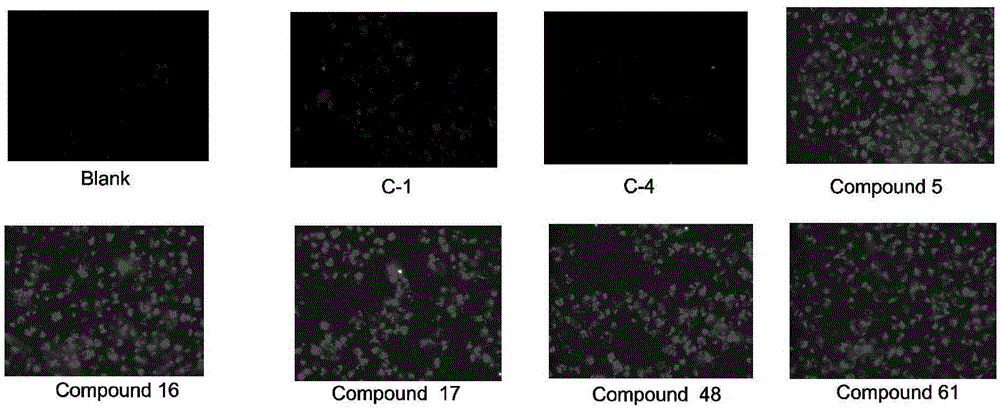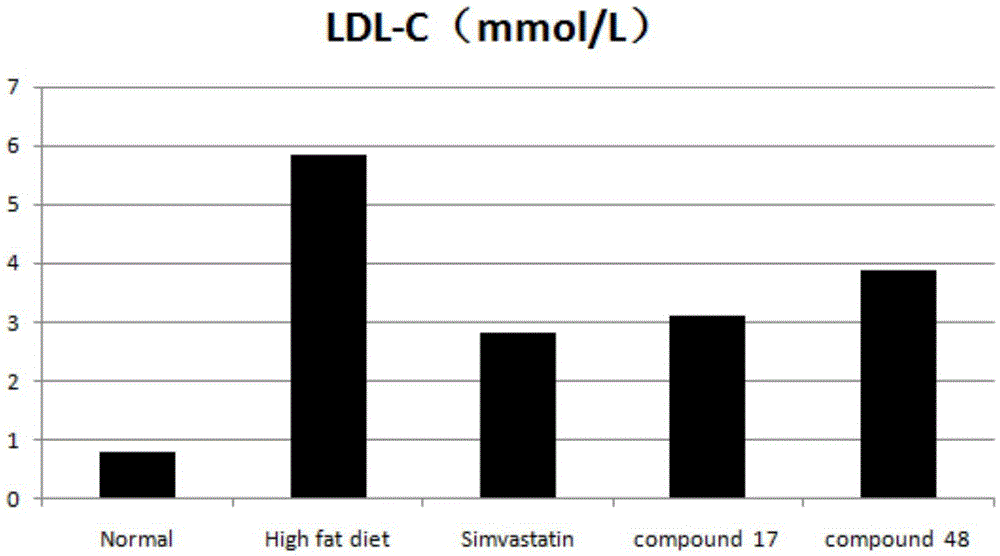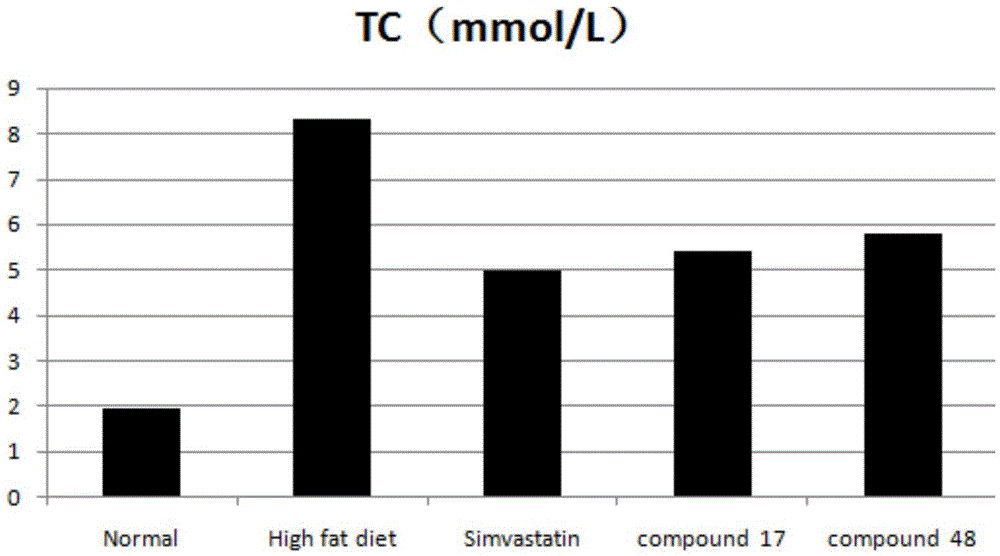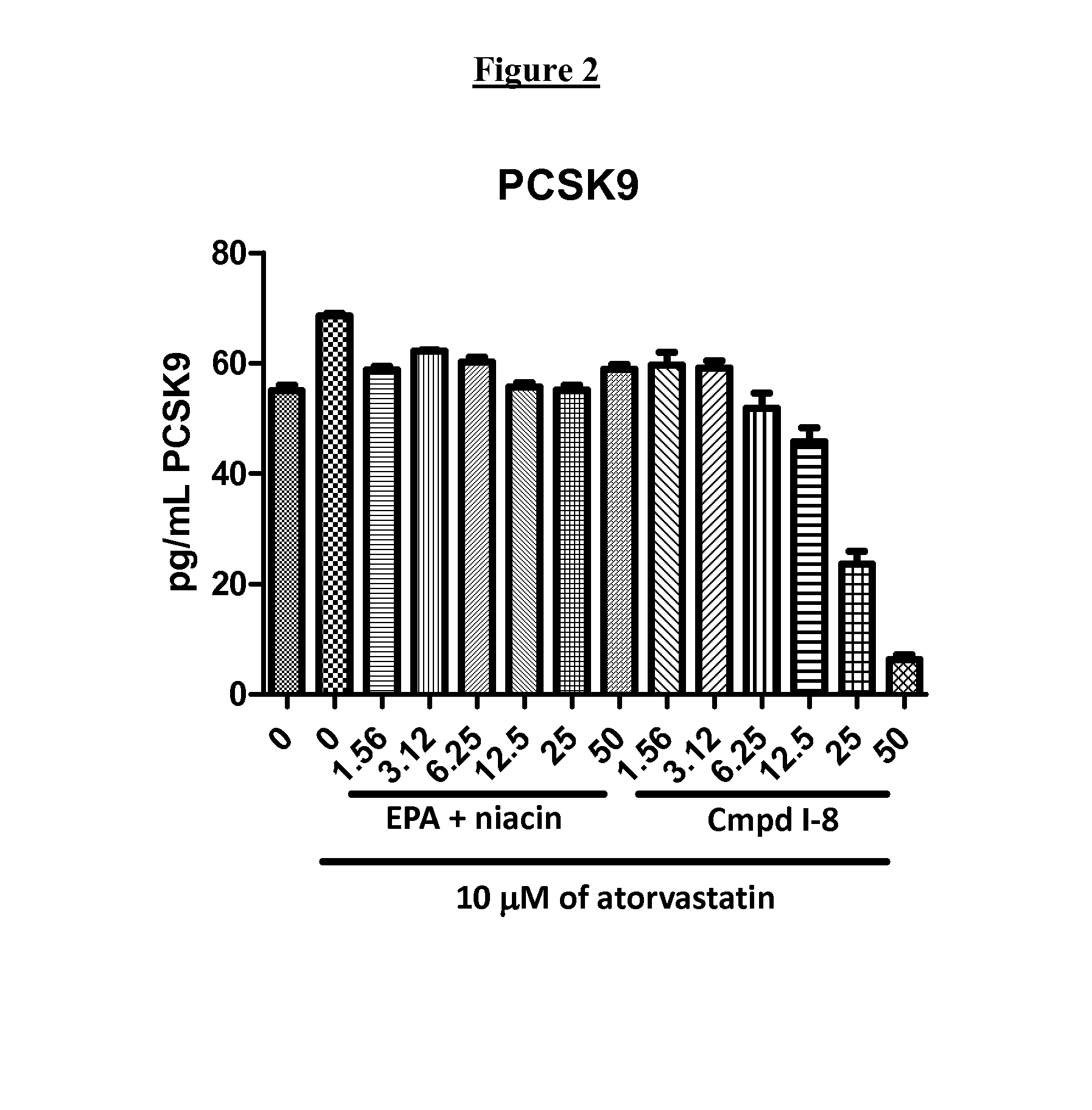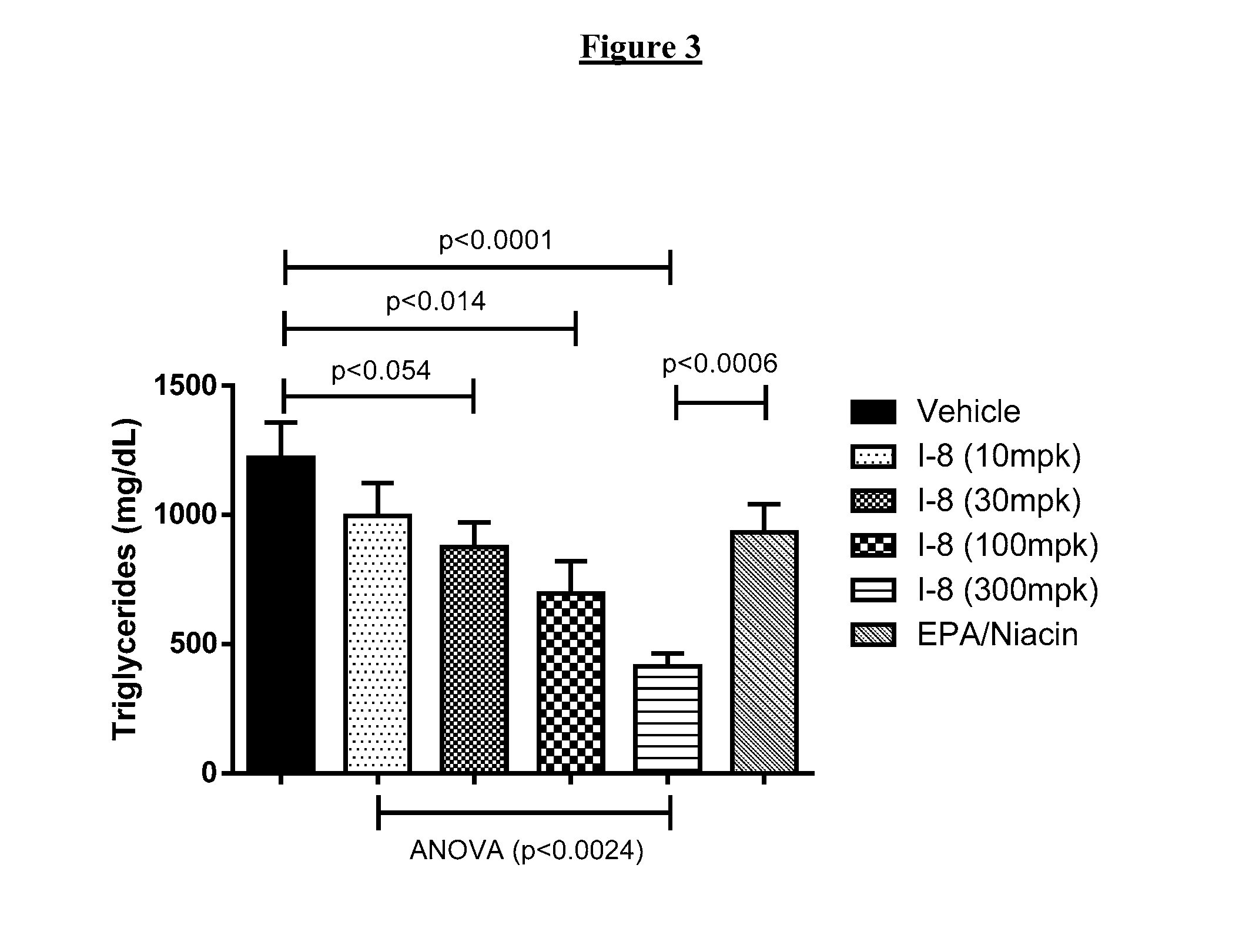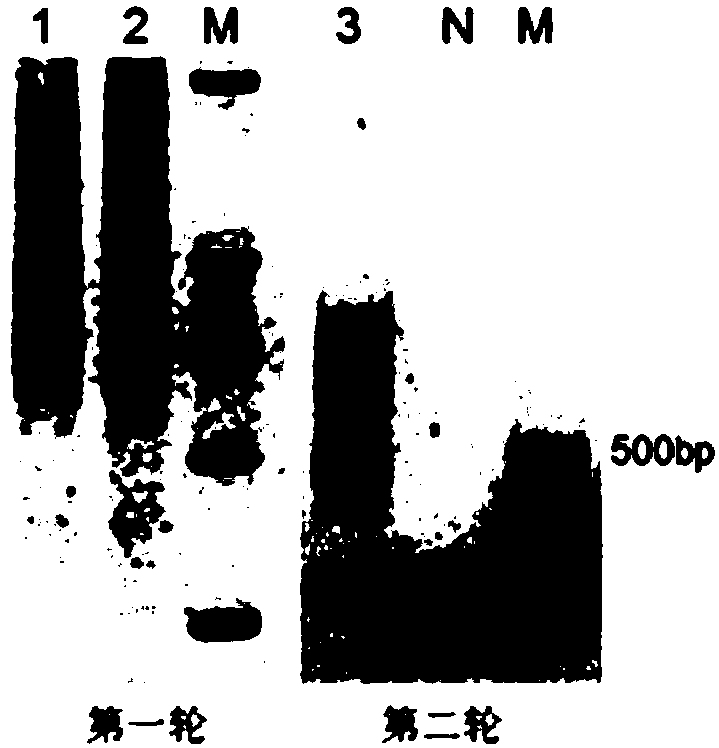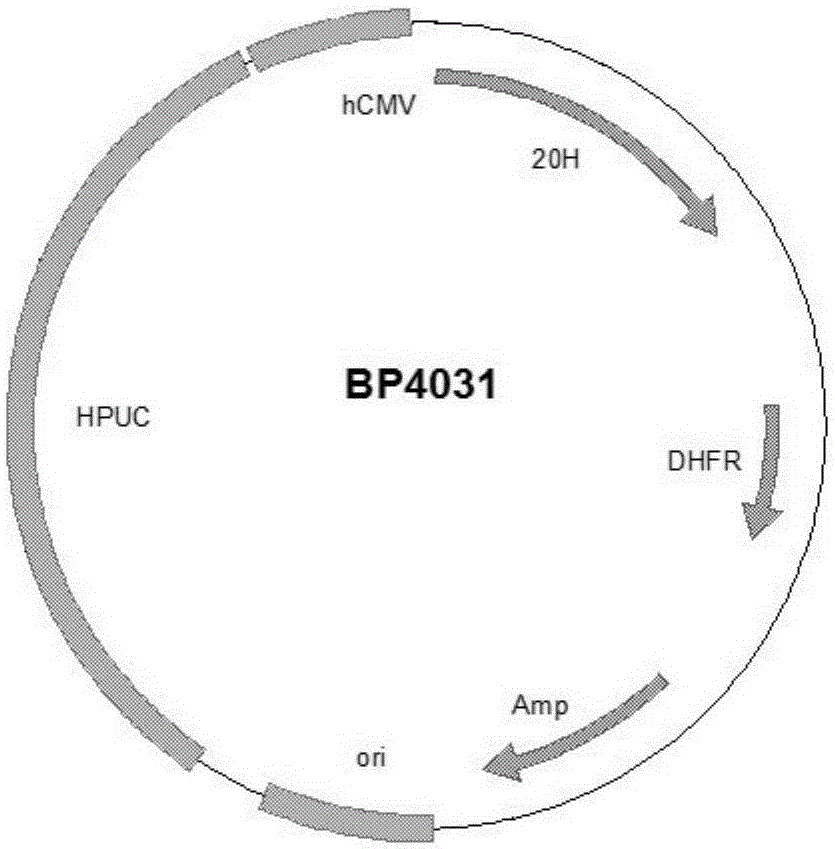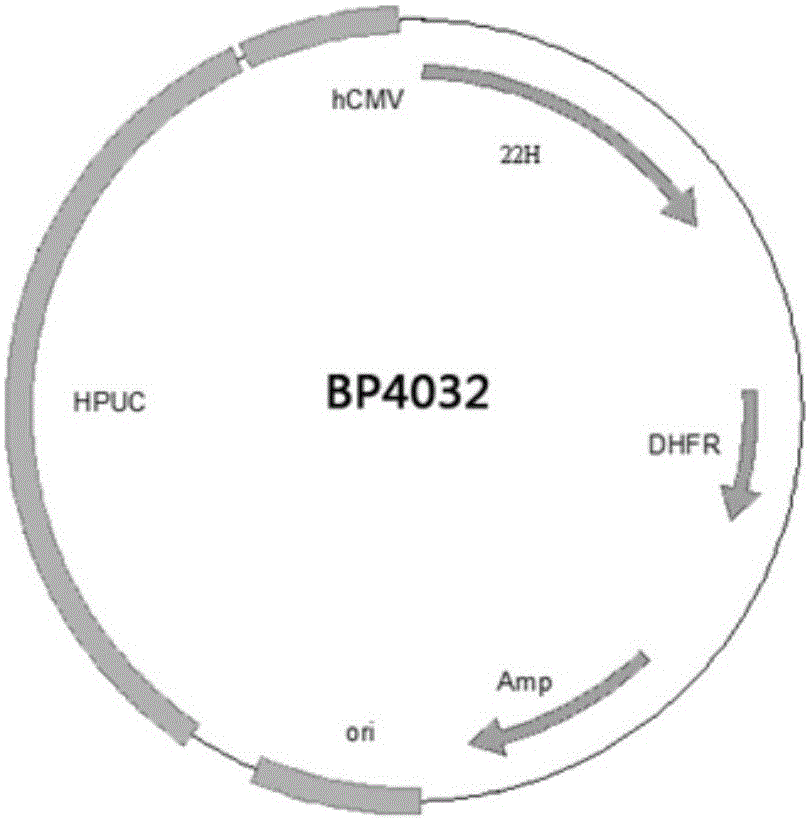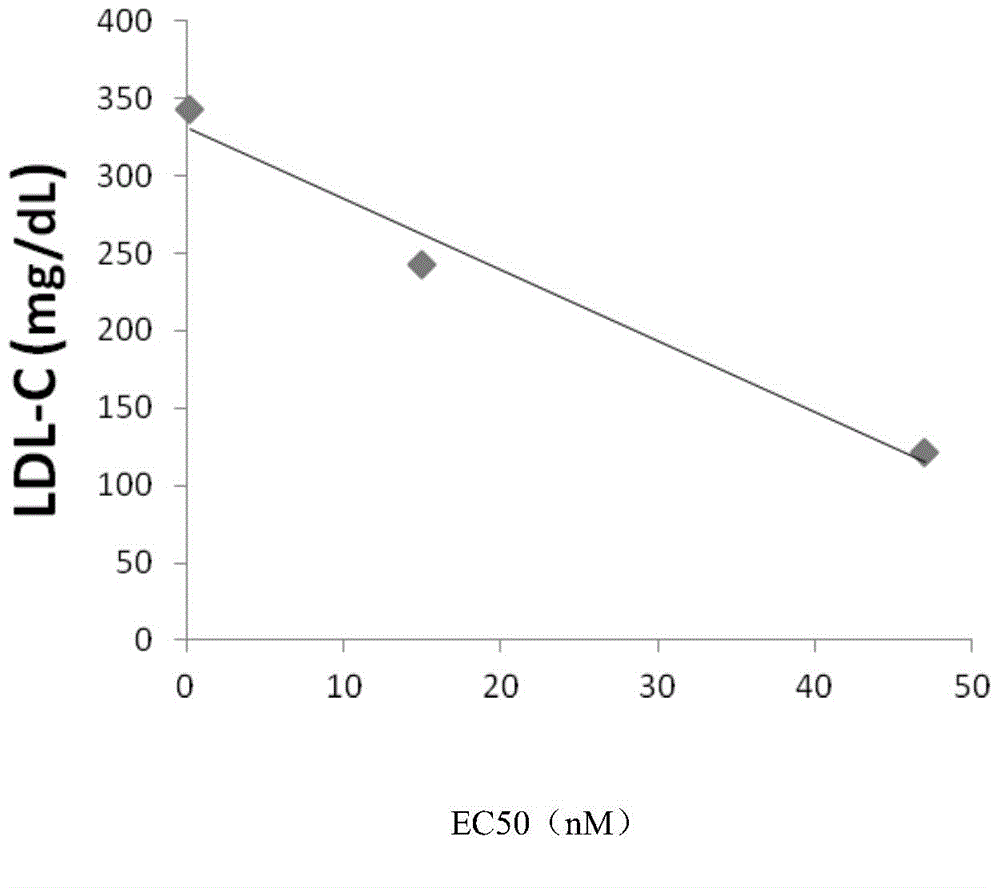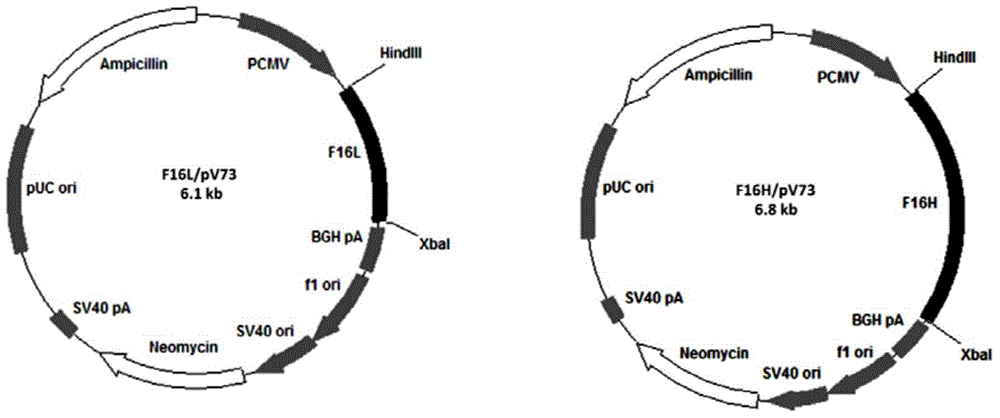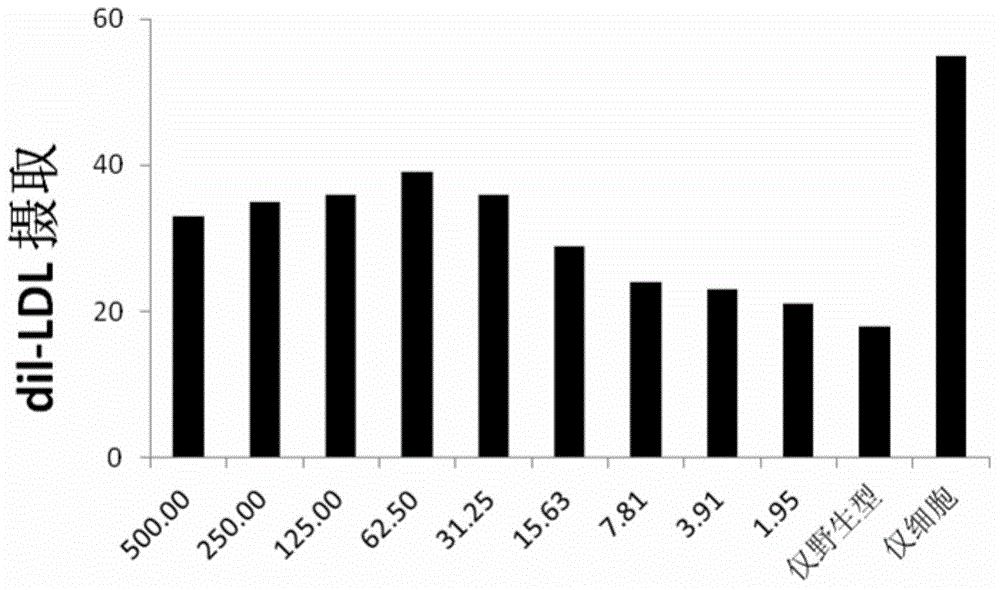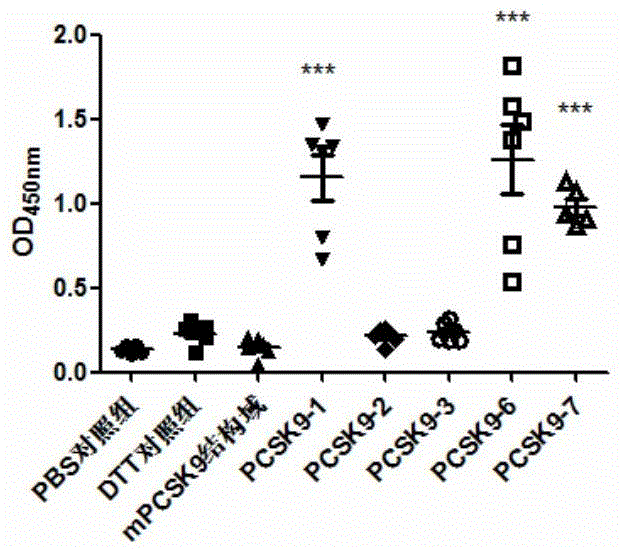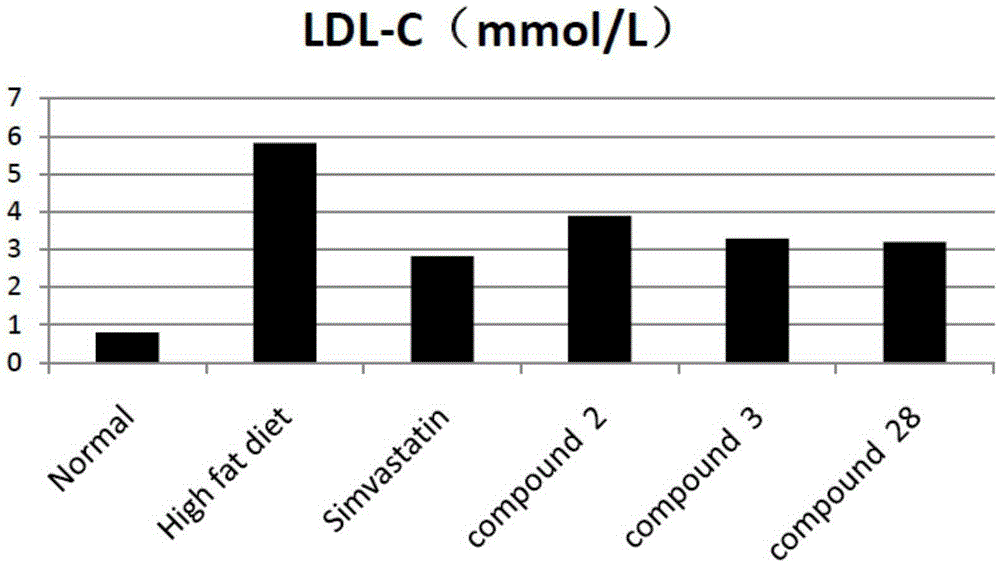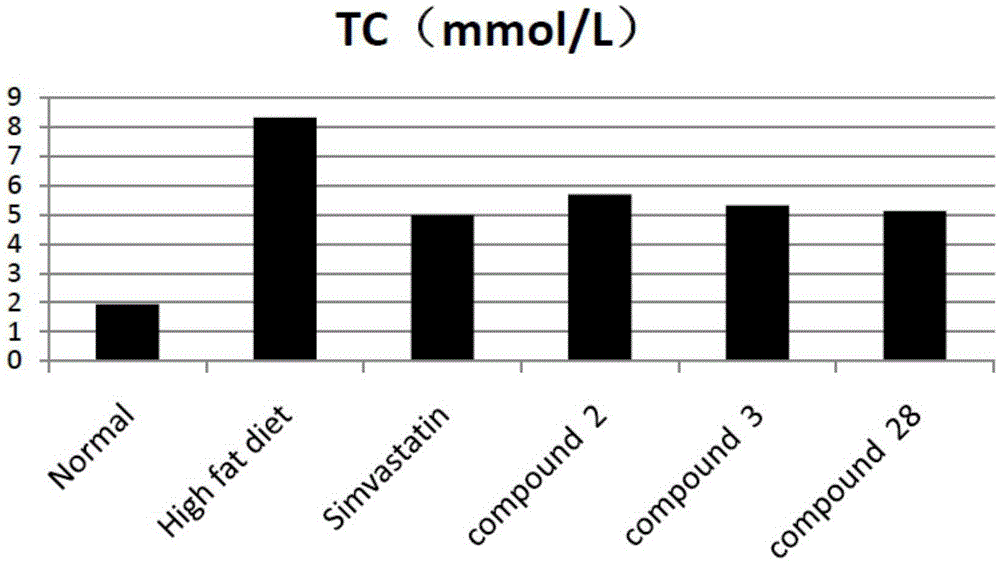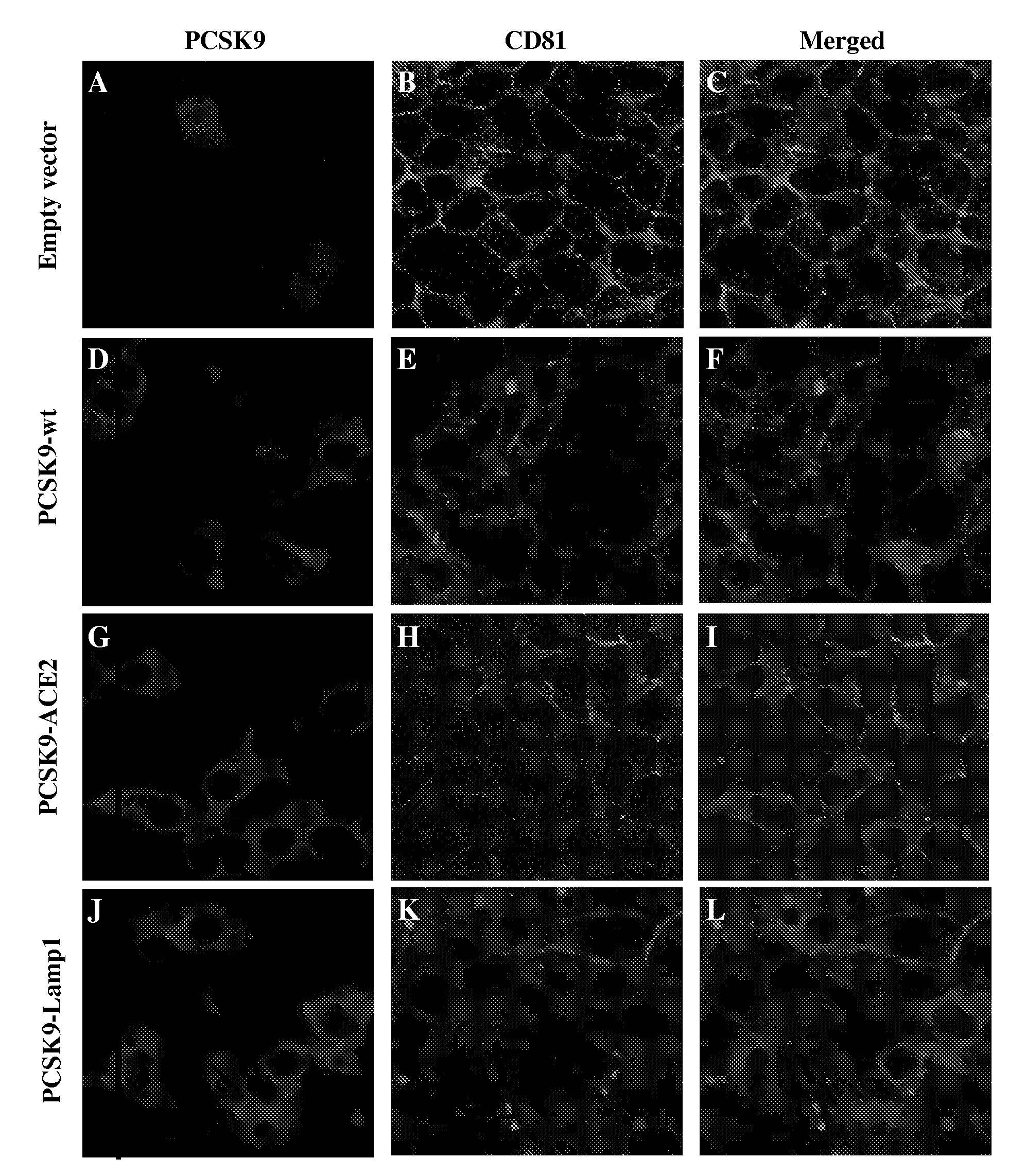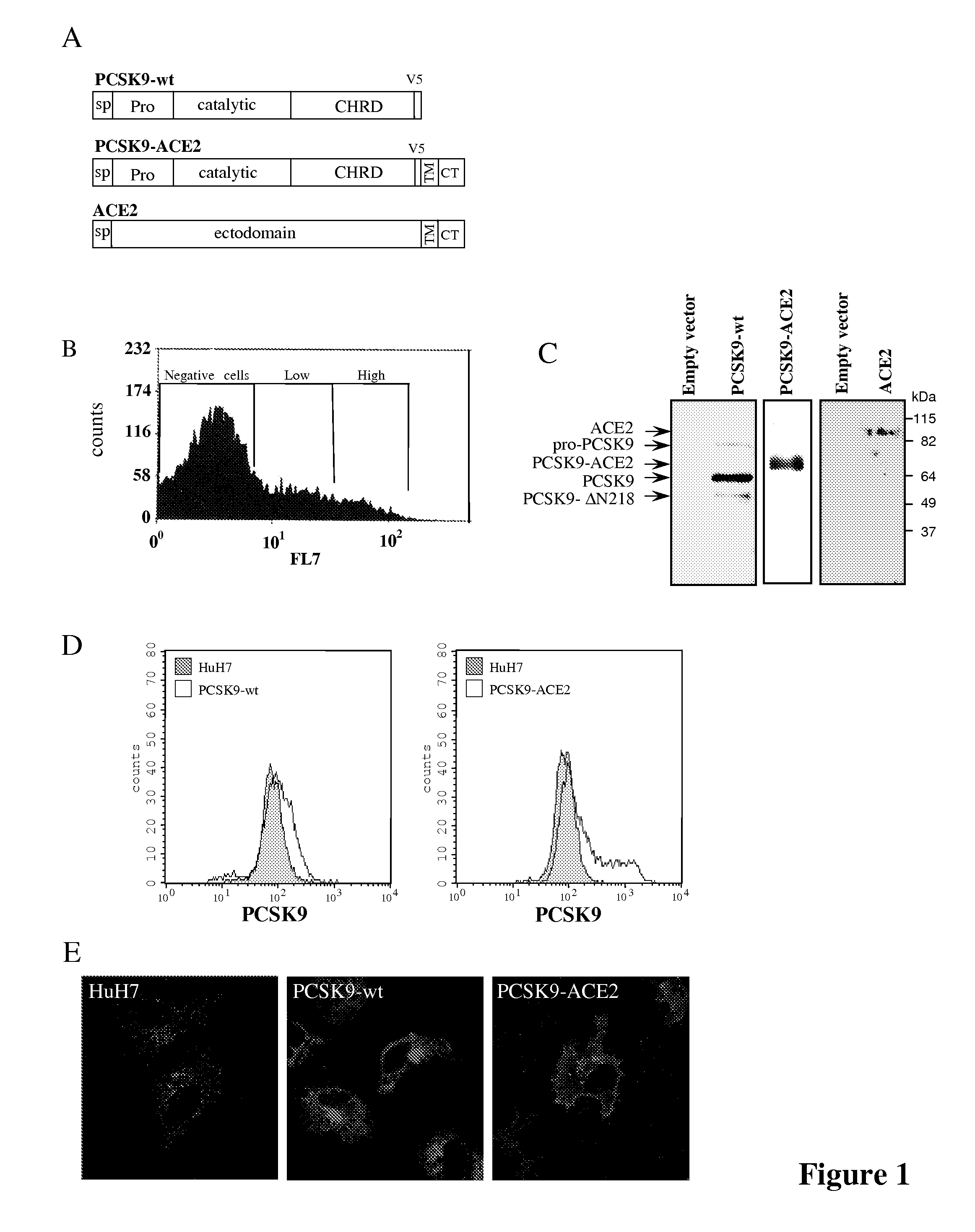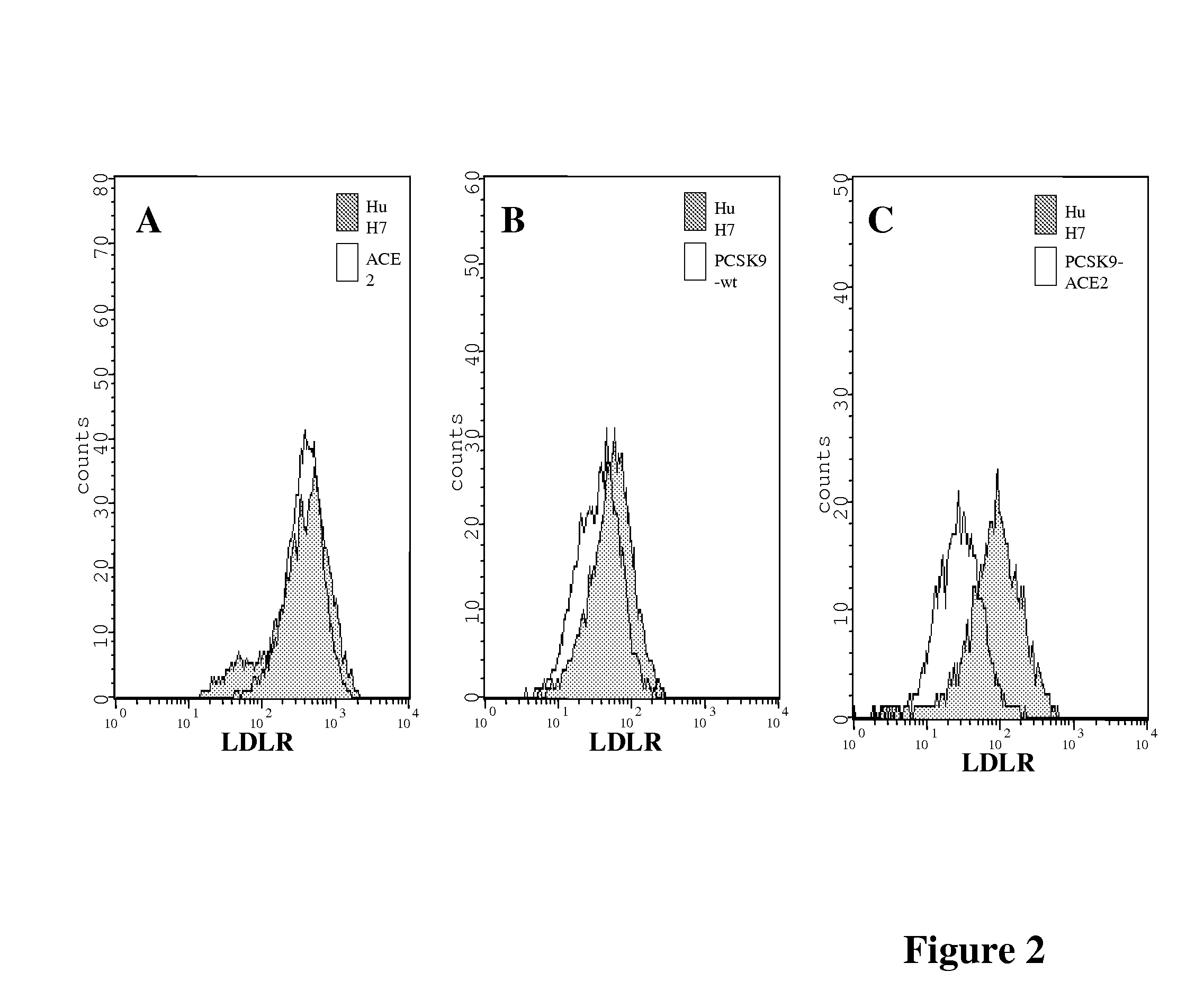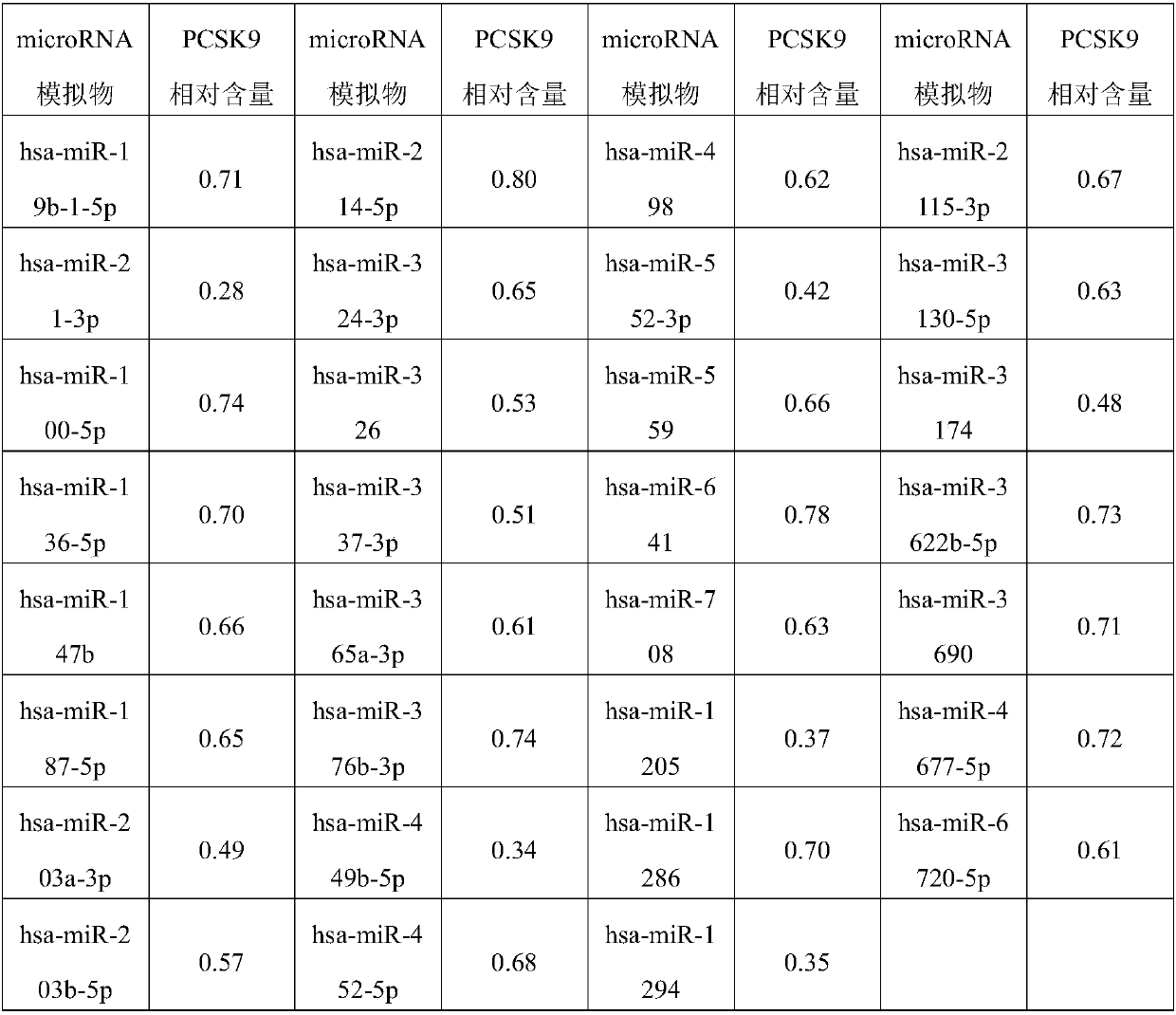Patents
Literature
Hiro is an intelligent assistant for R&D personnel, combined with Patent DNA, to facilitate innovative research.
222 results about "PCSK9" patented technology
Efficacy Topic
Property
Owner
Technical Advancement
Application Domain
Technology Topic
Technology Field Word
Patent Country/Region
Patent Type
Patent Status
Application Year
Inventor
Proprotein convertase subtilisin/kexin type 9 (PCSK9) is an enzyme encoded by the PCSK9 gene in humans on chromosome 1. It is the 9th member of the proprotein convertase family of proteins that activate other proteins. Similar genes (orthologs) are found across many species. As with many proteins, PCSK9 is inactive when first synthesized, because a section of peptide chains blocks their activity; proprotein convertases remove that section to activate the enzyme. The PCSK9 gene also contains one of 27 loci associated with increased risk of coronary artery disease.
1b20 pcsk9 antagonists
Antagonists of human proprotein convertase subtilisin-kexin type 9 (“PCSK9”) are disclosed. The disclosed antagonists are effective in the inhibition of PCSK9 function and, accordingly, present desirable antagonists for use in the treatment of conditions associated with PCSK9 activity. The present invention also discloses nucleic acid encoding said antagonists, vectors, host cells, and compositions comprising the antagonists. Methods of making PCSK9-specific antagonists as well as methods of using the antagonists for inhibiting or antagonizing PCSK9 function are also disclosed and form important additional aspects of the present disclosure.
Owner:MERCK SHARP & DOHME LLC
Isolated antibody which specifically binds to PCSK9
Owner:PFIZER INC RINAT NEUROSCIENCE CORP
1D05 PCSK9 antagonists
ActiveUS20090246192A1Lower Level RequirementsFermentationVector-based foreign material introductionKexinSubtilisin
Antagonists of human proprotein convertase subtilisin-kexin type 9 (“PCSK9”) are disclosed. The disclosed antagonists are effective in the inhibition of PCSK9 function and, accordingly, present desirable antagonists for use in the treatment of conditions associated with PCSK9 activity. The present invention also discloses nucleic acid encoding said antagonists, vectors, host cells, and compositions comprising the antagonists. Methods of making PCSK9-specific antagonists as well as methods of using the antagonists for inhibiting or antagonizing PCSK9 function are also disclosed and form important additional aspects of the present disclosure.
Owner:MERCK SHARP & DOHME LLC +1
RNA interference mediated inhibition of proprotein convertase subtilisin Kexin 9 (PCSK9) gene expression using short interfering nucleic acid (siNA)
InactiveUS20070173473A1Improve stabilityModulating RNAi activitySugar derivativesMicrobiological testing/measurementLipid formationProprotein Convertase Subtilisin/Kexin 9
The present invention relates to compounds, compositions, and methods for the study, diagnosis, and treatment of traits, diseases and conditions that respond to the modulation of Proprotein Convertase Subtilisin Kexin 9 (PCSK9) gene expression and / or activity. The present invention is also directed to compounds, compositions, and methods relating to traits, diseases and conditions that respond to the modulation of expression and / or activity of genes involved in Proprotein Convertase Subtilisin Kexin 9 (PCSK9) gene expression pathways or other cellular processes that mediate the maintenance or development of such traits, diseases and conditions. Specifically, the invention relates to double stranded nucleic acid molecules including small nucleic acid molecules, such as short interfering nucleic acid (siNA), short interfering RNA (siRNA), double-stranded RNA (dsRNA), micro-RNA (miRNA), and short hairpin RNA (shRNA) molecules capable of mediating RNA interference (RNAi) against Proprotein Convertase Subtilisin Kexin 9 (PCSK9) gene expression, including cocktails of such small nucleic acid molecules and lipid nanoparticle (LNP) formulations of such small nucleic acid molecules. The present invention also relates to small nucleic acid molecules, such as siNA, siRNA, and others that can inhibit the function of endogenous RNA molecules, such as endogenous micro-RNA (miRNA) (e.g, miRNA inhibitors) or endogenous short interfering RNA (siRNA), (e.g., siRNA inhibitors) or that can inhibit the function of RISC (e.g., RISC inhibitors), to modulate PCSK9 gene expression by interfering with the regulatory function of such endogenous RNAs or proteins associated with such endogenous RNAs (e.g., RISC), including cocktails of such small nucleic acid molecules and lipid nanoparticle (LNP) formulations of such small nucleic acid molecules. Such small nucleic acid molecules and are useful, for example, in providing compositions to prevent, inhibit, or reduce metabolic diseases traits and conditions, including but not limited to hyperlipidemia, hypercholesterolemia, cardiovascular disease, atherosclerosis, hypertension, diabetis (e.g., type I and / or type II diabetis), insulin resistance, obesity and / or other disease states, conditions, or traits associated with PCSK9 gene expression or activity in a subject or organism.
Owner:SIRNA THERAPEUTICS INC
1D05 PCSK9 antagonists
Antagonists of human proprotein convertase subtilisin-kexin type 9 (“PCSK9”) are disclosed. The disclosed antagonists are effective in the inhibition of PCSK9 function and, accordingly, present desirable antagonists for use in the treatment of conditions associated with PCSK9 activity. The present invention also discloses nucleic acid encoding said antagonists, vectors, host cells, and compositions comprising the antagonists. Methods of making PCSK9-specific antagonists as well as methods of using the antagonists for inhibiting or antagonizing PCSK9 function are also disclosed and form important additional aspects of the present disclosure.
Owner:MERCK SHARP & DOHME LLC +1
Anti-pcsk9 and methods for treating lipid and cholesterol disorders
ActiveUS20110033465A1Overcome technical difficultiesOrganic active ingredientsAntipyreticPeptide inhibitorPCSK9
The present invention provides compositions and methods for treating disorders of cholesterol and lipid metabolism by administration of an anti-PCSK9 antibody or a peptide inhibitor of PCSK9.
Owner:MERCK SHARP & DOHME CORP
1B20 PCSK9 antagonists
Antagonists of human proprotein convertase subtilisin-kexin type 9 (“PCSK9”) are disclosed. The disclosed antagonists are effective in the inhibition of PCSK9 function and, accordingly, present desirable antagonists for use in the treatment of conditions associated with PCSK9 activity. The present invention also discloses nucleic acid encoding said antagonists, vectors, host cells, and compositions comprising the antagonists. Methods of making PCSK9-specific antagonists as well as methods of using the antagonists for inhibiting or antagonizing PCSK9 function are also disclosed and form important additional aspects of the present disclosure.
Owner:MERCK SHARP & DOHME LLC
Pcsk9 antagonists
ActiveUS20110142849A1Reduce severitySufficient amountPeptide/protein ingredientsGenetic material ingredientsKexinSubtilisins
The present invention provides antibody antagonists against proprotein convertase subtilisin / kexin type 9a (“PCSK9”) and methods of using such antibodies.
Owner:NOVARTIS AG
Ax1 and ax189 psck9 antagonists and variants
Antagonists of human proprotein convertase subtilisin-kexin type 9 (“PCSK9”) are disclosed. The disclosed antagonists are effective in the inhibition of PCSK9 function and, accordingly, present desirable antagonists for use in the treatment of conditions associated with PCSK9 activity. The present invention also discloses nucleic acid encoding said antagonists, vectors, host cells, and compositions comprising the antagonists. Methods of making PCSK9-specific antagonists as well as methods of using the antagonists for inhibiting or antagonizing PCSK9 function are also disclosed and form important additional aspects of the present disclosure.
Owner:MERCK SHARP & DOHME LLC
ANTI-PCSK9 ANTIBODIES WITH pH-DEPENDENT BINDING CHARACTERISTICS
ActiveUS20140044730A1High affinityReduced binding affinityMetabolism disorderAntibody ingredientsDiseaseKexin
The present invention provides antibodies and antigen-binding fragments thereof that specifically bind proprotein convertase subtilisin / kexin-9 (PCSK9) with greater affinity at neutral pH than at acidic pH. The antibodies of the invention may possess one or more amino acid changes as compared to antibodies that do not exhibit pH-dependent binding properties. For example, the present invention includes anti-PCSK9 antibodies which possess one or more histidine substitutions in one or more complementarity determining regions. The antibodies of the invention, with pH-dependent binding properties, remain in circulation and exhibit cholesterol lowering activity for prolonged periods of time in animal subjects as compared to anti-PCSK9 antibodies that do not exhibit pH-dependent binding properties. The antibodies of the invention are therefore useful for treating diseases and disorders related to elevated HDL cholesterol, wherein the antibodies of the invention can be administered to a patient at a lower dose and / or with less frequent dosing as compared to antibodies that do not exhibit pH-dependent binding properties.
Owner:REGENERON PHARM INC
Anti-PCSK9 and methods for treating lipid and cholesterol disorders
The present invention provides compositions and methods for treating disorders of cholesterol and lipid metabolism by administration of an anti-PCSK9 antibody or a peptide inhibitor of PCSK9.
Owner:MERCK SHARP & DOHME CORP
Methods for treating hypercholesterolemia
InactiveUS8093222B2Reduction of ldl c levelLower Level RequirementsSugar derivativesMetabolism disorderMedicineCholesterol blood
Disclosed herein are antisense compounds and methods for decreasing LDL-C in an individual having elevated LDL-C. Additionally disclosed are antisense compounds and methods for treating, preventing, or ameliorating hypercholesterolemia and / or atherosclerosis. Further disclosed are antisense compounds and methods for decreasing coronary heart disease risk. Such methods include administering to an individual in need of treatment an antisense compound targeted to a PCSK9 nucleic acid. The antisense compounds administered include gapmer antisense oligonucleotides.
Owner:IONIS PHARMA INC
Anti-human PCSK9 monoclonal antibody
The invention discloses a novel anti-human PCSK9 monoclonal antibody or its fragment prepared by using a bacteriophage antibody library technology for screening and using a gene engineering method. The novel anti-human PCSK9 monoclonal antibody has high affinity to human PCSK9. The antibody can be a full-length antibody, a basically complete antibody, a Fab fragment, a F(ab')2 fragment or a single-chain Fv fragment. The monoclonal antibody or its fragment is used for treating disease mediated by human PCSK9, and the disease comprises, but not limited to, primary hypercholesterolemia, combined hyperlipidemia and familial hypercholesterolemia.
Owner:BEIJING WISDOMAB BIOTECHNOLOGY CO LTD +2
Variable region gene of full human monoclonal antibody specific to pro-protein convertase subtilisin/kexin 9 (PCSK9) and application thereof
The invention relates to the technical field of genetically engineered antibodies, in particular to a full human monoclonal antibody specific to pro-protein convertase subtilisin / kexin 9 (PCSK9) and a preparation method and an application of a full length antibody. According to a variable region gene, at least 80% identity between variable region code polypeptide of a heavy chain of the gene and a sequence that is shown in SEQ ID NO.1 can be achieved, and at least 80% identity between variable region code polypeptide of a light chain of the gene and a sequence that is shown in SEQ ID NO.2 can be achieved. Specifically, a human monoclonal antibody phage display library is used for screening Fab antibody specific to human PCSK9, and a complete full length antibody is obtained by a genetic engineering method. The antibody can be specifically combined with PCSK9, interaction of PCSK9 and low density lipoprotein receptor (LDLR) is effectively affected, LDLR degradation is inhibited, and the antibody can be applied to curing cholesterol and lipid metabolism diseases.
Owner:ZHEJIANG BLUE SHIELD PHARM CO LTD
Antisense oligomers targeting PCSK9
Owner:ROCHE INNOVATION CENT COPENHAGEN
RNA INTERFERENCE MEDIATED INHIBITION OF PROPROTEIN CONVERTASE SUBTILISIN KEXIN 9 (PCSK9) GENE EXPRESSION USING SHORT INTERFERING NUCLEIC ACID (siNA)
InactiveUS20110313024A1Modulating RNAi activityImprove propertiesSugar derivativesMetabolism disorderDiseaseProprotein Convertase Subtilisin/Kexin 9
The present invention relates to compounds, compositions, and methods for the study, diagnosis, and treatment of traits, diseases and conditions that respond to the modulation of Proprotein Convertase Subtilisin Kexin 9 (PCSK9) gene expression and / or activity. Specifically, the invention relates to double stranded nucleic acid molecules including small nucleic acid molecules, such as short interfering nucleic acid (siNA), short interfering RNA (siRNA), double-stranded RNA (dsRNA), micro-RNA (miRNA), and short hairpin RNA (shRNA) molecules capable of mediating RNA interference (RNAi) against Proprotein Convertase Subtilisin Kexin 9 (PCSK9) gene expression, including cocktails of such small nucleic acid molecules and lipid nanoparticle (LNP) formulations of such small nucleic acid molecules.
Owner:MERCK SHARP & DOHME CORP
Method for preparing electrochemical immunosensor for pcsk9 protein detection
InactiveCN107389949AImprove conductivityHigh sensitivityBiological testingMaterial electrochemical variablesProtein detectionStaphylococcus aureus
The invention relates to a preparation method and application of an electrochemical immunosensor for a biomarker, namely a recombinant proprotein convertase subtilisin kexin type 9 (pcsk9) protein for predicting and diagnosing cardiovascular diseases, and belongs to the technical field of electrochemical detection. The preparation method is characterized by comprising the following steps: firstly, performing nitrogen doping on a graphene nanobelt (n-gnrs), performing amination on a fullerene-palladium-platinum nanoparticle (n-C60 / pdpt) composite material and a staphylococcus aureus a protein (spa), and performing layer-by-layer self-assembling so as to immobilize a pcsk9 antibody (ab1); mixing the synthesized nanoparticle-poly-methylene blue (pt-pmb) with the pcsk9 antibody (ab2), and preparing a nano beacon, thereby obtaining the electrochemical immunosensor for pcsk9 protein detection. The electrochemical immunosensor has the advantages of being high in sensitivity, good in specificity and rapid and convenient in detection. A novel method for pcsk9 protein detection is provided, and useful information is provided for clinical prediction and diagnosis on cardiovascular diseases.
Owner:CHONGQING MEDICAL UNIVERSITY
Aromatic-ring azacyclo derivatives and application thereof
InactiveCN105777632AHigh expressionOrganic chemistryMetabolism disorderAcute hyperglycaemiaSteatosis
Aromatic-ring azacyclo derivatives and an application thereof are provided. The invention relates to compounds represented by the formula (V), and a preparation method and an application thereof in medicines. In particular, the invention relates to derivatives of the compounds represented by the general formula (V), and a preparation method and the application thereof as therapeutic agents in prevention and treatment of hyperlipidemia, hypercholesterolemia, hypertriglyceridemia, hepatic steatosis, type-II diabetes, hyperglycemia, obesity or insulin resistance syndromes and metabolic syndromes. The compounds disclosed by the invention also can reduce total cholesterol, LDL-cholesterol and triglycerides, increase the expression of hepatic LDL receptors and inhibit the expression of PCSK9.
Owner:CHENGDU BESTCHIRALBIO LIMITED LIABILITY
Methods of lowering proprotein conversate subtilisin/kexin type 9 (PCSK9)
InactiveUS20140093513A1Convenient treatmentReduce plasma cholesterol levelBiocideSenses disorderSubtilisinsProprotein Convertase Inhibitors
The invention relates to new methods of modulating cholesterol by inhibiting proprotein convertase subtilisin / kexin type 9 (PCSK9) with fatty acid derivatives; and new methods for treating or preventing a metabolic disease comprising the administration of an effective amount of a fatty acid derivative. The present invention is also directed to fatty acid bioative derivatives and their use in the treatment of metabolic diseases.
Owner:CATABASIS PHARMA
Method for detecting autoprocessed, secreted pcsk9
InactiveUS20100113575A1Effective identification and analysisEffective therapyOrganic active ingredientsHydrolasesEpitopeCoronary heart disease
The present invention provides a method for detecting autoprocessed, secreted PCSK9, a protein involved in cholesterol homeostasis, and for effectively identifying compounds that inhibit autocleavage and secretion from cells. The disclosed method involves the insertion of an epitope tag into a PCSK9 expression construct immediately C-terminal to the pro domain ending at an amino acid residue corresponding to Q152 of human PCSK9. Upon autoprocessing, the epitope tag is exposed and capable of recognition by anti-epitope antibodies or other suitable identification system, allowing for the selective and exclusive identification and / or quantification of processed PCSK9. The present disclosure thus advances the goal of providing enabling technology to the art for the effective identification of therapeutics effective in combating coronary heart disease.
Owner:MERCK SHARP & DOHME CORP
Antagonists of pcsk9
Antagonists of human proprotein convertase subtilisin-kexin type 9 ('PCSK9') are disclosed. The disclosed antagonists are effective in the inhibition of PCSK9 function and, accordingly, present desirable antagonists for the use in the treatment of conditions associated with PCSK9 activity. The present invention also discloses nucleic acid encoding said antagonists, vectors, host cells, and compositions comprising the antagonists. Methods of making PCSK9-specific antagonists as well as methods of using the antagonists for inhibiting or antagonizing PCSK9 function are also disclosed and form important additional aspects of the present disclosure.
Owner:SCHERING AG
Nano antibody and preparation method thereof
ActiveCN109897110AGood water solubilityImprove patienceMetabolism disorderAntibody ingredientsAntigenSolubility
The invention provides a nano antibody. The nano antibody comprises the characteristics that (1) an amino acid sequence shown in SEQ ID NO:1 is achieved; or (2) compared with the (1), the at least 70%identity, the at least 75% identity, the at least 80% identity, the at least 85% identity, the at least 90% identity, the at least 95% identity, and the at least 99% identity are achieved. The nano antibody is an antibody specifically targeting PCSK9, the native conformation PCSK9 can be combined, and the nano antibody has the high water solubility, high tolerance, high stability, high antigen bondability, low immunogenicity, high tissue penetrating power, and high expressivity.
Owner:SHENZHEN HUADA GENE INST
Preparation and application of anti-human PCSK9 (pro-protein convertase subtilisin/kexin 9) antibody
The invention discloses an anti-human PCSK9 (pro-protein convertase subtilisin / kexin 9) chimeric antibody, and preparation and application thereof. The preparation method comprises the following steps: respectively amplifying mouse light chain and heavy chain variable region genes from mouse hybridoma cells, respectively carrying out chimerism with light chain and heavy chain constant region genes of human IgG, and carrying out recombination expression to obtain the human-mouse chimeric antibody. The human-mouse chimeric antibody has favorable affinity with human PCSK9, obviously inhibits the degradation activity of the PCSK9 for liver cell low-density lipoprotein receptors (LDLR), enhances the ingestion of liver cells for LDL-cholesterol (LDL-C), and lowers the cholesterol level in blood.
Owner:成都金洛克锶生物技术有限公司
Anti-human PCSK9 monoclonal antibody
ActiveCN106084058AHigh affinityLower LDL-C levelsMetabolism disorderAntibody ingredientsVascular diseaseMonoclonal antibody
The invention belongs to the field of antibodies and particularly relates to an anti-human PCSK9 monoclonal antibody and application of the antibody in preparation of drugs for reducing lipoprotein level in blood and preventing or treating cardiovascular diseases or disorders and thrombosis-obstructive diseases or disorders. The anti-human PCSK9 monoclonal antibody has higher affinity and a good application prospect.
Owner:BEIJING MABWORKS BIOTECH
PCSK9 antagonist
InactiveCN105001336AMetabolism disorderAntibody ingredientsVery low-density lipoproteinCholesterol blood
The present invention relates to the technical field of monoclonal antibodies, particularly to a PCSK9 antagonist. The present invention further provides a method for obtaining the antibodies, uses of the antibodies to reduce the low density lipoprotein (LDL)-cholesterol level, and / or a treatment method for treatment and / or prevention of cardiovascular diseases (including hypercholesterolemia).
Owner:上海复旦张江生物医药股份有限公司
Design and application of PCSK9 targeting recombinant vaccine
The present invention discloses design and application of a PCSK9 targeting recombinant vaccine, and specifically discloses a PCSK9 targeting recombinant vaccine. Experimental results show that the recombinant vaccine can effectively induce animal body to produce immunoreaction aiming at PCSK9, and effectively reduce cholesterol level. The invention also provides an antigen epitope peptide and fusion protein based on the PCSK9.
Owner:SHANGHAI HYCHARM
Tetrahydrocoptisine derivative and applications thereof
InactiveCN105418601AMetabolism disorderGroup 5/15 element organic compoundsLiver steatosisPancreatic hormone
The present invention relates to a compound as shown in a formula (VII), a preparation method and applications thereof in medicines. In particular, the present invention relates to a derivative of the compound as shown in the formula (VII), a preparation method, and the applications of the derivative used as a therapeutic agent in prevention and treatment of hyperlipidemia, hypercholesterolemia, hypertriglyceridemia, hepatic steatosis, II-type diabetes, hyperglycemia, obesity or insulin resistance syndrome and metabolic syndrome. The compound disclosed by the present invention can also reduce total cholesterol, LDL-cholesterol and triglyceride, and increases expression of a liver LDL receptor and decreases expression of PCSK9.
Owner:CHENGDU BESTCHIRALBIO LIMITED LIABILITY
Methods of reducing a viral infection and kits therefore
InactiveUS20090104209A1Lower Level RequirementsHigh activityBiocideCompound screeningSubtilisinKexin
A method for treating and / or preventing a proprotein convertase subtilisin / kexin type 9 preproprotein (PCSK9)-susceptible viral infection comprising increasing a PCSK9 activity and / or expression in a biological system infected by the virus, whereby the increased PCSK9 activity and / or expression treats and / or prevents the viral infection in the biological system. Methods of classifying subjects, methods of screening and kits therefore.
Owner:INSTITUT NATIONAL DE LA RECHERCHE SCIENTIFIQUE +1
Application of PCSK9-targeted microRNA in treating LDLC related metabolic disease
ActiveCN109985243ALower levelOrganic active ingredientsMetabolism disorderLow density lipoprotein cholesterolMicroRNA
The invention provides application of PCSK9-targeted microRNA or a drug composition containing the same in preparing drug for inhibiting PCSK9 protein level. In addition, the invention further relatesto a drug composition for treating low-density lipoprotein cholesterol related metabolic disease. The drug composition comprises (a) drug in effective treatment amount and clinically for treating thelow-density lipoprotein cholesterol related metabolic disease and (b) PCSK9-targeted microRNA or the drug composition containing the same in effective treatment amount. Experiments verify that 31 types of microRNA can inhibit PCSK9 protein level in liver cells or liver cell culture liquid, thereby being capable of lowering level of LDLC so as to treat the LDLC related metabolic disease.
Owner:SHANGHAI INST OF MATERIA MEDICA CHINESE ACAD OF SCI +1
Features
- R&D
- Intellectual Property
- Life Sciences
- Materials
- Tech Scout
Why Patsnap Eureka
- Unparalleled Data Quality
- Higher Quality Content
- 60% Fewer Hallucinations
Social media
Patsnap Eureka Blog
Learn More Browse by: Latest US Patents, China's latest patents, Technical Efficacy Thesaurus, Application Domain, Technology Topic, Popular Technical Reports.
© 2025 PatSnap. All rights reserved.Legal|Privacy policy|Modern Slavery Act Transparency Statement|Sitemap|About US| Contact US: help@patsnap.com


